The Winners of the 2016 Tour de France
In a stellar performance, Team Sky's Chris Froome finished Stage 21 as the winner of the 2016 Tour de France
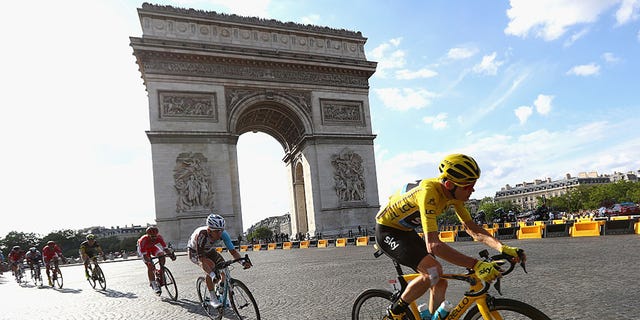
Last updated July 24 at 4:21 PM

Stage 8-21: Chris Froome
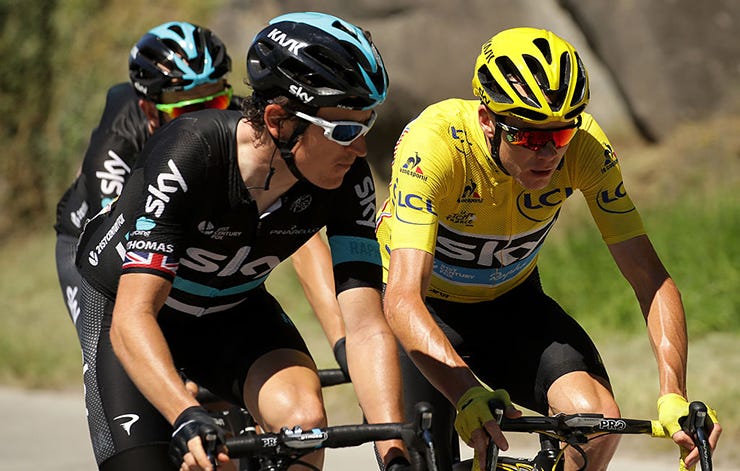
Team Sky’s Chris Froome took the third Tour de France victory of his career July 24th—an achievement that ties him with Belgium’s Philippe Thys, France’s Louison Bobet, and the United States’s Greg LeMond for second place on the list of the Tour’s winningest champions. With two more Tour wins, Froome would join France’s Jacques Anquetil and Bernard Hinault, Belgium’s Eddy Merckx, and Spain’s Miguel Indurain on the Mount Rushmore of Tour de France champions.
RELATED: How Froome Became the Tour's Fourth Three-Time Winner
How Many Tours Can He Win? For Froome, it appears that the Sky’s the limit: as long as he races for Team Sky (a team which has now won four of the last five Tours de France), there’s no reason to expect anyone else will defeat him in the near future. Froome recently extended his contract with the British super-team, so the Kenyan-born Briton will ride for the squad for two more seasons, and thus has a great opportunity to tie the all-time record of five Tour de France victories (barring any bad luck).
Should Froome and Sky decide to extend their relationship even further, there’s little reason to doubt Froome’s chances of becoming the winningest rider in Tour de France history. He’ll be 33 years old at that point—not young for a Tour de France contender, but not over the hill, either.
RELATED: Why Chris Froome is the Tour's Most Surprising Rider
Who Will Be His Biggest Competition Next Year? Since Froome became a contender, only two have gotten in his way at the Tour de France: his teammate, Bradley Wiggins , in 2012, and crashes in 2014. Otherwise, Froome’s had little trouble dispatching his rivals to win the world’s biggest bike race.
That doesn’t mean men like Nairo Quintana, Romain Bardet, Richie Porte, and Alberto Contador won’t stop trying. But next year’s odds are already starting to fall in Froome’s favor; information about the route of the 2017 Tour de France (which won’t be officially released until October) is already starting to leak. We know that the race will begin in Dusseldorf, Germany, but from there, it’s rumored to travel through Belgium and Luxembourg before tackling the first summit finish of the race on la Planche des Belles Filles.
If that’s true, Froome and Team Sky will be tickled: the Briton won a stage atop the climb in 2012, the year Bradley Wiggins won Sky its first Tour, and Froome announced himself as a future Tour champion. If the rumors prove true, mark that stage as the day Chris Froome begins to put a stranglehold on yet another Tour de France.
Who Were the Tour's Other Winners? The yellow jersey isn’t the only jersey awarded in the Tour de France, and Stage 20 also put the finishing touches on the Tour’s other jersey competitions. Tinkoff’s Peter Sagan locked up his fifth green jersey as the winner of the Tour’s Points Classification a long time ago, while his teammate Rafal Majka won his second polka dot jersey as the Tour’s King of the Mountains. Lastly, Orica-BikeExchange’s Adam Yates held onto his lead in the Tour’s Best Young Rider competition, meaning the Briton took the white jersey on the final podium.
Stage 5-7: Greg Van Avermaet
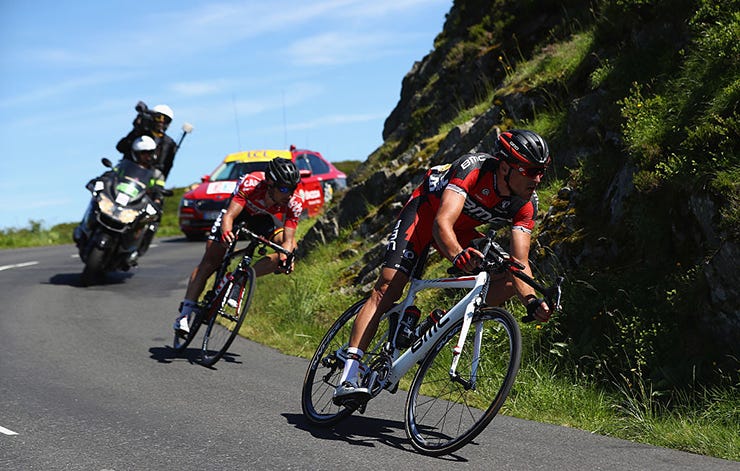
They say that the best defense is a good offense, and that’s just what BMC’s Greg Van Avermaet did today. In an attempt to defend the yellow jersey he’s worn since winning Stage 5, the Belgian went on the attack midway through Stage 7, along with 28 other riders hoping to win the first Pyrenean stage of the 2016 Tour de France . Van Avermaet didn’t win the stage, but he added more time to his lead. Thanks to his aggressive riding, the yellow jersey is his for another day.
RELATED: How Van Avermaet Crushed Stage 5
How Long Can He Stay in the Yellow? Stage 8 has four tough climbs on tap for the riders, including the Col du Tourmalet, the first Hors Categorie or “Beyond Category” ascent of this year's Tour. Van Avermaet’s efforts today will certainly affect him tomorrow, but he has more than a six-minute lead over the Tour’s second-place rider. Tour history is filled with stories of riders who have worn the yellow jersey days longer than anyone expected them to. Van Avermaet could be writing another one.
Who's Really Winning the Tour? It’s still too soon to say who’s really winning the Tour, but it looks as if another pre-race contender has lost it. FDJ’s Thibaut Pinot , considered by many to be a podium threat, was distanced on the Col d’Aspin today, and lost several minutes to the rest of the Tour’s overall contenders. While two weeks of the Tour remain, the Frenchman’s hopes of a top-three finish are probably over.
Stages 3-4: It's Still Sagan's Race
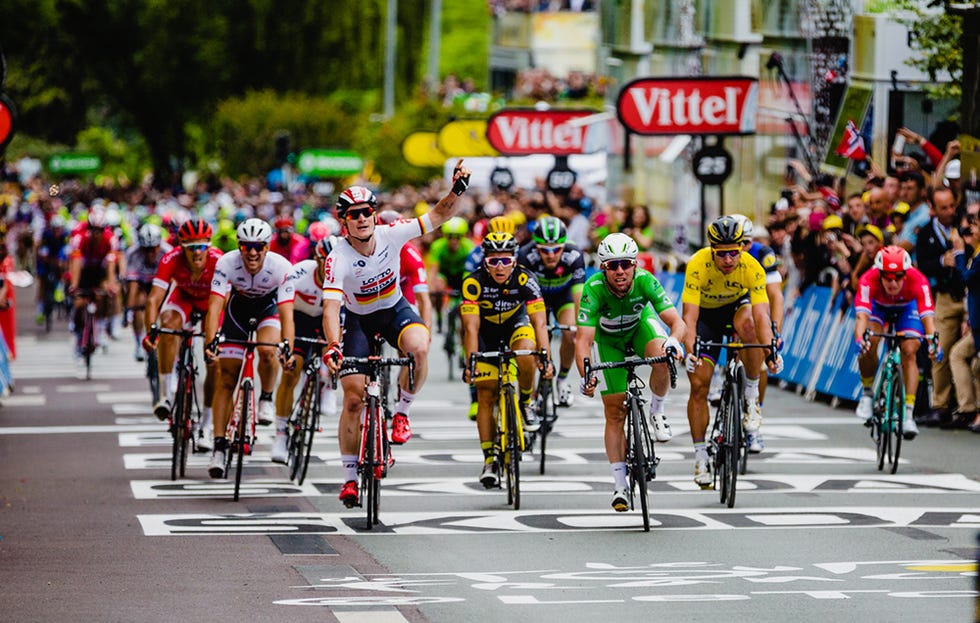
Tinkoff’s Peter Sagan stills leads the Tour, and thanks the four-second time bonus that came with his third-place finish on Stage 4, he extended his lead to 12 seconds over Etixx—Quick-Step’s Julian Alaphilippe and 14 seconds over Movistar’s Alejandro Valverde.
RELATED: Kittel Wins Stage 4
How Long Can He Stay in the Yellow? Tomorrow’s stage is the hardest of the Tour so far, with a cluster of Category 2 and 3 ascents clustered in the final 45km of the stage. Sagan will need to have one of the best days of his career in order defend the jersey against the likes of Alaphilippe and Valverde, two riders whose past performances make them top contenders for tomorrow’s stage.
That said, Sagan has surprised us before. Remember the climb of Mt. Baldy in last year’s Amgen Tour of California ? Sagan had a jersey to defend that day too—and he rose to the challenge. Coincidentally, his biggest challenger that day was also Alaphilippe. Can history repeat itself tomorrow? Tune-in and see.
Who’s Really Winning the Tour It’s still too soon to say, but tomorrow’s stage could give the Tour’s overall contenders—men like Team Sky’s Chris Froome and Movistar’s Nairo Quintana—their first opportunity to test one another before the race hits the Pyrenees on Friday.
Stage 2: Tinkoff’s Peter Sagan Takes the Lead
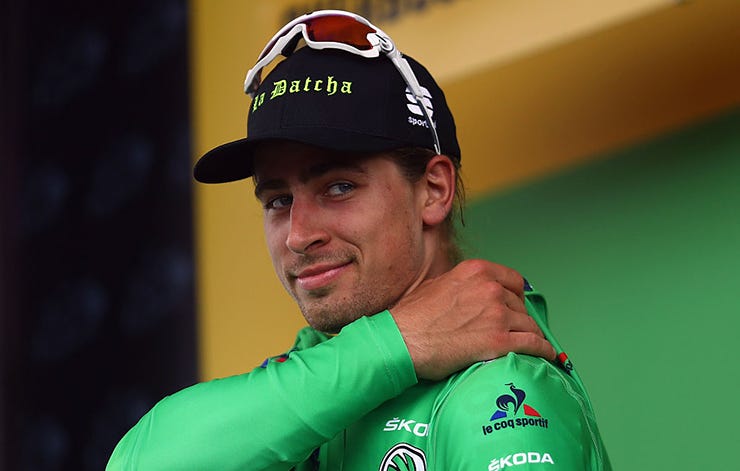
Peter Sagan is now in the lead in this year's Tour, following his Stage 2 victory in Cherbourg. The World Champion was patient on the final climb of the Côte de la Glacerie and the final ramp to the finish line, letting other riders attack while saving his sprint at the last possible moment.
RELATED: The Must-Watch Stages of This Year's Tour
The stage win was his first since the 2013 Tour de France, and the yellow jersey that came with it is the first of his career. He also holds the green jersey as the leader of the Tour’s Points Competition, but won’t be wearing as long as he holds yellow.
How long can he stay in yellow? Quite a while, actually. The next two stages are expected to end in field sprints. Even if pure sprinters like Dimension Data’s Mark Cavendish, Etixx—Quick-Step’s Marcel Kittel, and Lotto-Soudal’s Andre Greipel earn time bonuses via stage victories, they lost too much time at the end of Stage 2 to make much of a dent in Sagan’s lead. As for GC riders like Team Sky’s Chris Froome and Movistar’s Nairo Quintana, they’re waiting for the Pyrenees before starting their real battle for the yellow jersey.
Sagan’s greatest threat might be Quintana’s Movistar teammate, Alejandro Valverde. Wednesday’s Stage 5 is quite hilly, and Valverde has the skills to drop Sagan on the steep climbs late in the stage. Etixx—Quick-Step’s Julian Alaphilippe (second to Sagan on Stage 2) bears watching as well.
Who’s Losing the Tour? It’s too soon to say who’s really winning the Tour, but two riders already appear to have lost it (or at least, they haven’t done themselves any favors). Tinkoff’s Alberto Contador crashed hard during Stage 1, then fell again midway through Stage 2. The battered rider lost a minute to his rivals at the end of the stage, and has started the Tour in the worst way possible.
RELATED: Contador's Spectacular Stage 1 Crash
Another pre-race contender, BMC’s Richie Porte, lost 1:45 today thanks to a flat tire late in the stage. There are still three weeks before Paris, but these two riders have a lot of ground to make-up to get there in yellow.
Stage 1 Goes to Mark Cavendish
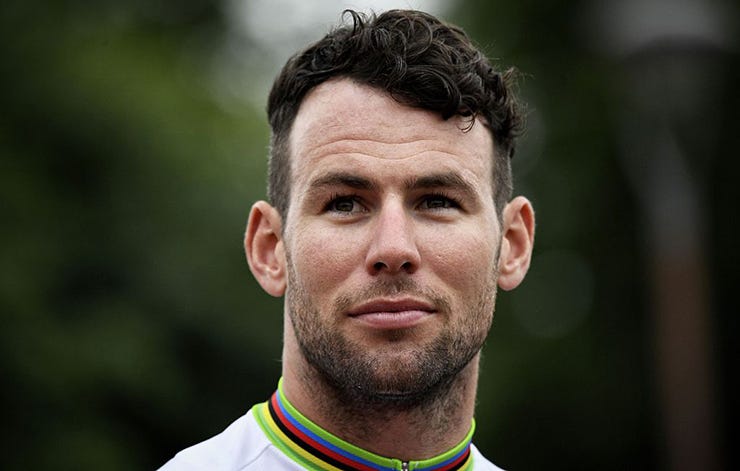
Dimension Data's Mark Cavendish scored his 27th Tour de France stage victory today at Utah Beach. But in doing so, he also won something he's never actually won before: the yellow jersey as the overall leader of the Tour de France. Cavendish out-sprinted Etixx--Quick-Step's Marcel Kittel and Tinkoff's Peter Sagan to win the stage, and now leads the two riders by 4 and 6 seconds respectively.
How Long Can He Stay in the Yellow? Stage 2 ends after the top of a short, steep climb, though, making Sagan a good bet to take the jersey for himself tomorrow. It's a finish that's certainly too hard for Cavendish and Kittel, but not too hard for the Slovak. So don't expect Cavendish to be in yellow after Stage 2; the finish may prove too challenging for him.
Who’s Really Winning the Tour As for the rest of the overall contenders, it's too soon make predictions about who's going to win the 2016 Tour de France. That said, Alberto Contador's chances took a big hit when the Spaniard crashed mid-stage. He says he suffered only cuts and scrapes, but it's certainly not the way he wanted to start his Tour.
RELATED: Cavendish's Sprint to Capture Stage 1

.css-1t6om3g:before{width:1.75rem;height:1.75rem;margin:0 0.625rem -0.125rem 0;content:'';display:inline-block;-webkit-background-size:1.25rem;background-size:1.25rem;background-color:#F8D811;color:#000;background-repeat:no-repeat;-webkit-background-position:center;background-position:center;}.loaded .css-1t6om3g:before{background-image:url(/_assets/design-tokens/bicycling/static/images/chevron-design-element.c42d609.svg);} Racing

2024 Tour de France Femmes: Results from Stage 8

Neither Niewiadoma or Vollering May Win the TdFF

TdFF Stage 8 Preview: Alpe d’Huez or Bust

Cédrine Kerbaol’s Stage 6 Win Shifts the GC

Tour de France Femmes 2024 Stage 7 Preview

How Sepp Kuss Can Win Another Vuelta a España

SD-Worx Put Too Much Trust in Their Radios

TdF Femmes Stage 6: The Calm before the Storm

How to Watch the 2024 Vuelta a España

How Puck Pieterse Beat Demi Vollering on Stage 4

2024 Tour de France Femmes: Stage 5 Preview
Chris Froome wins 2016 Tour de France as André Greipel takes final stage
Chris Froome takes his third Tour de France victory in Paris on Sunday as André Greipel takes the final sprint showdown on the Champs Élysées
- Sign up to our newsletter Newsletter
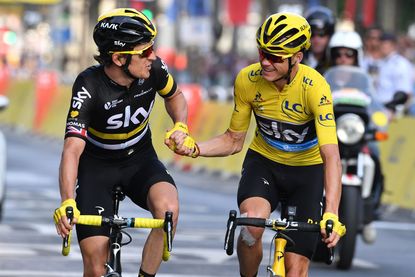
Chris Froome and Geraint Thomas on stage 21 of the 2016 Tour de France
Chris Froome (Team Sky) elevated himself further among the cycling greats by winning the 2016 Tour de France in Paris on Sunday, his third Tour victory.
Froome took the lead after winning stage eight of the 103rd edition of the race and never looked back. He survived running up Mont Ventoux and crashing in the Alps to secure the historic victory.
Froome finished the race four minutes and five seconds ahead of Frenchman Romain Bardet (Ag2r La Mondiale), with Nairo Quintana (Movistar) in third at 4-21.
Along with Froome's overall win and two stage wins, plus four stage wins for Mark Cavendish (Dimension Data) and one for Steve Cummings (Dimension Data), British success continued with Adam Yates (Orica-BikeExchange) securing the white jersey of best young rider and placing fourth overall. It's the first time a British rider has ever topped the best young rider classification and has now set him up as an exciting new Grand Tour prospect.
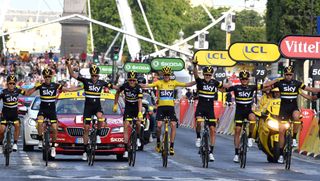
German sprinter André Greipel (Lotto-Soudal) won the bunch sprint at the end of the final stage, out-pacing points classification winner Peter Sagan (Tinkoff) to the line. Alexander Kristoff (Katusha) was third. British sprinter Dan McLay was 12th, having completed his first Tour.
It's Greipel's sole stage victory in the 2016 race, and is his 11th Grand Tour since 2008 with at least one stage victory.
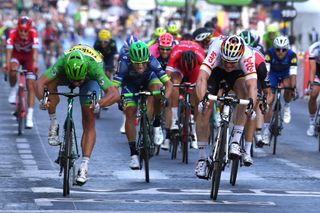
Before the frantic finale, the traditional procession after the start of the last stage saw a slow pace as riders chatted and got to enjoy rolling along in the warm, sunny weather. Froome and Sky team-mates indulged in an unconventional bottle of beer followed by a more conventional glass of Champagne.
Get The Leadout Newsletter
The latest race content, interviews, features, reviews and expert buying guides, direct to your inbox!
It wasn't until the race hit the Champs Élysées that the pace picked up and a break formed with 50km to go.
Jan Barta (Bora), Marcus Burghardt (BMC), Rui Costa (Lampre-Merida), Lawson Craddock (Cannondale-Drapac), Brice Feillu (Fortuneo-Vital Concept), Alexis Gougeard (Ag2r-La Mondiale), Jérémy Roy (FDJ) and Daniel Teklehaimanot (Dimension Data) were the eight riders to finally get away.
Marcel Kittel (Etixx-QuickStep) suffered a technical mishap, and was seen throwing his rear wheel across the road after a couple of bike changes. He then paced himself back up to the bunch without the help of team-mates, but the effort would see him out of the running in the final sprint.
The break was joined by Sky duo Luke Rowe and Wout Poels, who bridged over with 18km to go evidently trying to get rid of any unexpended energy from the previous three weeks.
>>> Chris Froome and Peter Sagan’s special bikes for Tour de France final stage
All escapees were caught with 10km to go, and the bunch was still all together with one lap of the cobbled loop and 6.6km to go. It took a while for the sprinters' teams to get organised at the front, with a jumble of riders initially jostling for position.
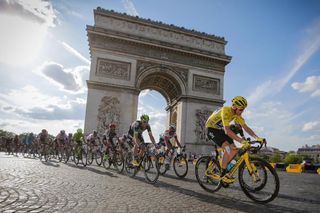
A couple of late crashes took out a few riders, and French sprinter Bryan Coquard (Direct Energie) appeared to suffer from a puncture with 3km to go, his hope of a stage win over.
The tight corners into the finish straight disrupted Greipel's Lotto-Soudal sprint train, but he jumped on Kristoff's rear wheel and accelerated away on the cobbles. Sagan was gaining on him as Kristoff faded, but Greipel lunged clear on the line to win on the Champs Élysées for a second consecutive year.
Tony Martin (Etixx-QuickStep) was a surprise abandon during the final stage after suffering from knee pain during the stage. It left 174 riders left in the race, the highest ever number of finishers in the race's 103 editions – the previous record was 170 in 2010.
>>> Tour de France 2016: Latest news, reports and info
Tour de France 2016, stage 21: Chantilly to Paris Champs-Élysées, 113km
1. André Greipel (Ger) Lotto-Soudal in 2-43-08
2. Peter Sagan (Svk) Tinkoff
3. Alexander Kristoff (Nor) Katusha
4. Edvald Boasson Hagen (Nor) Dimension Data
5. Michael Matthews (Aus) Orica-BikeExchange
6. Jasper Stuyven (Bel) Trek-Segafredo
7. Ramunas Navardauskas (Ltu) Cannondale-Drapac
8. Christophe Laporte (Fra) Cofidis
9. Sam Bennett (Irl) Bora-Argon 18
10. Janse Van Rensburg (RSA) Dimension Data all same time
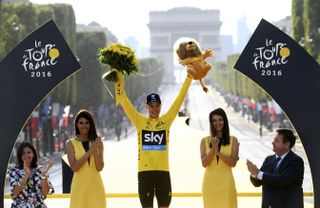
Final general classification
1. Chris Froome (GBr) Team Sky in 89-06-01
2. Romain Bardet (Fra) Ag2r La Mondiale, at 4-05
3. Nairo Quintana (Col) Movistar at 4-21
4. Adam Yates (GBr) Orica-BikeExchange at 4-42
5. Richie Porte (Aus) BMC at 5-17
6. Alejandro Valverde (Esp) Movistar at 6-16
7. Joaquim Rodriguez (Esp) Katusha at 6-58
8. Louis Meintjes (RSA) Lampre-Merida at 6-58
9. Dan Martin (Irl) Etixx-Quick Step at 7-04
10. Roman Kreuziger (Cze) Tinkoff at 7-11
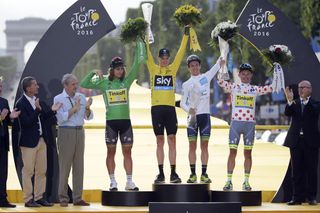
King of the Mountains classification: Rafal Majka (Pol) Tinkoff
Points classification: Peter Sagan (Svk) Tinkoff
Young rider classification: Adam Yates (GBr) Orica-BikeExchange
Best team: Movistar
Thank you for reading 20 articles this month* Join now for unlimited access
Enjoy your first month for just £1 / $1 / €1
*Read 5 free articles per month without a subscription
Join now for unlimited access
Try first month for just £1 / $1 / €1
Nigel Wynn worked as associate editor on CyclingWeekly.com, he worked almost single-handedly on the Cycling Weekly website in its early days. His passion for cycling, his writing and his creativity, as well as his hard work and dedication, were the original driving force behind the website’s success. Without him, CyclingWeekly.com would certainly not exist on the size and scale that it enjoys today. Nigel sadly passed away , following a brave battle with a cancer-related illness, in 2018. He was a highly valued colleague, and more importantly, an exceptional person to work with - his presence is sorely missed.
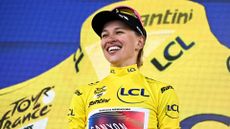
"I've gone through such a terrible time on this climb. I hated everything," shares the yellow jersey victor.
By Anne-Marije Rook Published 18 August 24
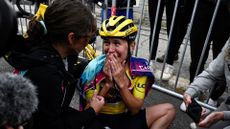
The final stage of the 2024 Tour de France avec Zwift was a game of maths.
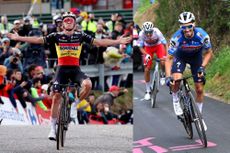
Double Olympic champion and Alaphilippe headline Soudal Quick-Step team selection
By Tom Thewlis Published 16 August 24
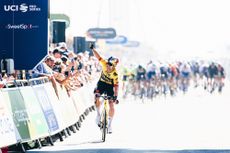
Funds still outstanding after British Cycling agreed to honour prize money
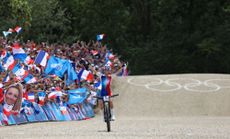
Pauline Ferrand-Prévot signed for Visma-Lease a Bike this week due to Ineos Grenadiers still lacking plans for a Women’s WorldTour team
By Tom Thewlis Published 9 August 24
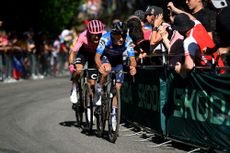
Double Olympic champion Remco Evenepoel expected to feature for Soudal Quick-Step as Belgian team return to the race for the first time since 2021
By Tom Thewlis Published 7 August 24
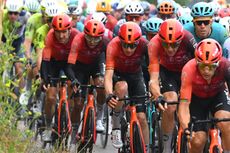
The British team are always under pressure to match their past best, but it’s not going to happen anytime soon
By Adam Becket Published 23 July 24
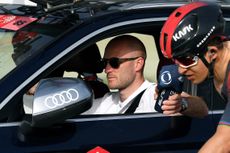
Netflix series depicted tension between the DS and rider, dynamic sources told Cycling Weekly carries a degree of accuracy
By Tom Thewlis Published 28 June 24
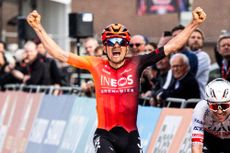
British rider hopes to play starring role in Italian Grand Départ
By Tom Thewlis Published 26 June 24
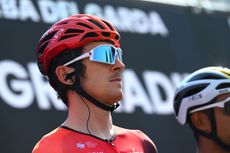
Former yellow jersey winner says this year's race "could be my last"
By Tom Davidson Published 26 June 24
Useful links
- Tour de France
- Giro d'Italia
- Vuelta a España
buyers-guides
- Best road bikes
- Best gravel bikes
- Best smart turbo trainers
- Best cycling computers
- Editor's Choice
- Bike Reviews
- Component Reviews
- Clothing Reviews
- Contact Future's experts
- Terms and conditions
- Privacy policy
- Cookies policy
- Advertise with us
Cycling Weekly is part of Future plc, an international media group and leading digital publisher. Visit our corporate site . © Future Publishing Limited Quay House, The Ambury, Bath BA1 1UA. All rights reserved. England and Wales company registration number 2008885.
- Work & Careers
- Life & Arts
Tour de France 2016 in charts: how Sky dominate the mountains, and Cavendish regains sprinting supremacy
- Tour de France 2016 in charts: how Sky dominate the mountains, and Cavendish regains sprinting supremacy on x (opens in a new window)
- Tour de France 2016 in charts: how Sky dominate the mountains, and Cavendish regains sprinting supremacy on facebook (opens in a new window)
- Tour de France 2016 in charts: how Sky dominate the mountains, and Cavendish regains sprinting supremacy on linkedin (opens in a new window)
- Tour de France 2016 in charts: how Sky dominate the mountains, and Cavendish regains sprinting supremacy on whatsapp (opens in a new window)
John Burn-Murdoch
Roula Khalaf, Editor of the FT, selects her favourite stories in this weekly newsletter.
Follow John Burn-Murdoch
Chris Froome and Team Sky have dominated the 2016 of the Tour de France from its first mountain stage onwards, in one of the most controlled editions of the race for years.
Froome won the most time from his rivals in the race’s two individual time trial stages, but equally notable — both as a spectacle and as a key tactic in how the race was won — was the way Sky protected Froome’s lead in the mountains by setting a searing pace that left no scope for attacks from the other teams and riders.
Towards the end of his second Tour de France victory last year, Froome had been vulnerable to attacks on the slopes of the final two stages, and saw his winning margin cut by almost two-thirds across stages 19 and 20.
But this year Sky made sure there would be no such late drama, bringing to the race one of the strongest climbing teams it has ever seen. Supporting Froome — arguably the strongest climber in road cycling today — in the Pyrenean and Alpine peaks were five outstanding mountain men in their own right.
Going in to the race, Froome’s imperial guard of Mikel Landa, Mikel Nieve, Wout Poels, Sergio Henao and Geraint Thomas had four mountain stage wins and seven top-ten general classification finishes in grand tours, as well as more than a dozen other victories in road cycling’s second tier of races. In almost any other team, any of these riders would be a team leader.
And Sky’s strength-in-depth was no more evident that in the latter stages of stage 9′s climb to Andorre Arcalis. Over the final 10km of racing, Sky’s brutal strategy played out like clockwork, as each of Froome’s lieutenants in turn went to the front of the peloton, cranked up the pace to a level others could only match at best, and then when lungs and legs could take no more, slipped back through the ranks.
GPS tracking information provided by Dimension Data shows how each huge effort from a Sky rider shed a handful of riders from the back of the elite group, whittling down Froome’s challengers on the stage from 43 riders with 10km of the climb remaining to just 6 when he crossed the finish line. So punishing was the pace that at no point could any of his rivals attack off the front.

Explore a more detailed version of the graphic
Stage 9 was a microcosm of what many say now threatens the sport as a competitive spectacle : Sky’s financial resources have allowed them to build a cadre of climbers whose physiological abilities simply cannot be matched by any other team in the sport.
Is the resurgent Mark Cavendish the fastest man in the peloton once again?
With Sky and Froome shutting down the fight for the general classification early on, much of the excitement at this year’s Tour was found in the sprint finishes, where riders fling themselves towards the line at speeds of up to 50 miles per hour, streaking across the tarmac only inches apart.
All four of modern road cycling’s most-decorated sprinters started the race this year: Britain’s Mark Cavendish lining up against German pair Marcel Kittel and André Greipel, as well as world champion and all-round superstar Peter Sagan.
After a victory-studded early career, Cavendish had appeared to be in decline. In 2013 and 2015 his speed was no match for Kittel and Greipel respectively, and in 2014 a crash ended his Tour before the opening sprint stage.
Kittel’s emergence in particular looked to have ended any debate over who was the fastest man in the peloton, the German being three years Cavendish’s junior, at 28 years old. Going into this year’s Tour, Cavendish had never beaten Kittel when the two had gone shoulder-to-shoulder in a sprint finish at any road race.
But the first week of this year’s race well and truly reopened the debate. A reinvigorated Cavendish won the opening stage ahead of Kittel, giving him the one major road cycling accolade he had yet to receive — the Tour leader’s maillot jaune .
And the Manxman went on to beat first Greipel and then Kittel again into second place, dominating the sprints in a way he hadn’t really done since 2011, his final year with Team HTC, whose tactics were built around him to an extent not seen for any sprinter since.
When he withdrew from the race ahead of stage 17, Cavendish took the sprinting bragging rights with him.
The Briton’s reemergence elevates him to third place in the FT’s road cycling Sprinter Ratings, which score each rider based on how they fare in bunch sprints against other sprint specialists, adjusting for the quality of opposition.

Cavendish now lies just five points behind Kittel, having started the Tour 162 points down.
Leading the ratings is 21-year-old Colombian star Fernando Gaviria, who will line up against Cavendish on the track in the hunt for Olympic gold in the omnium at this summer’s games in Rio.
To date Gaviria has lost on the road only once to any of the other top sprinters: a defeat to Cavendish in the 2015 San Luis . The Briton appears to be hitting peak form just in time for their Olympic showdown, but with Gaviria absent from the Tour, we will have to wait and see whether he too arrives in Rio in top form.
Promoted Content
Follow the topics in this article.
- Sport Add to myFT
- Life & Arts Add to myFT
- Visual and data journalism Add to myFT
- Dimension Data Holdings PLC Add to myFT
- Geraint Thomas Add to myFT
- Live on Sky
- Get Sky Sports
- Sky Mobile App
- Kick It Out
- Black Lives Matter
- British South Asians in Football
More Sports
Tour de France 2016 standings and results
Sunday 24 July 2016 22:55, UK
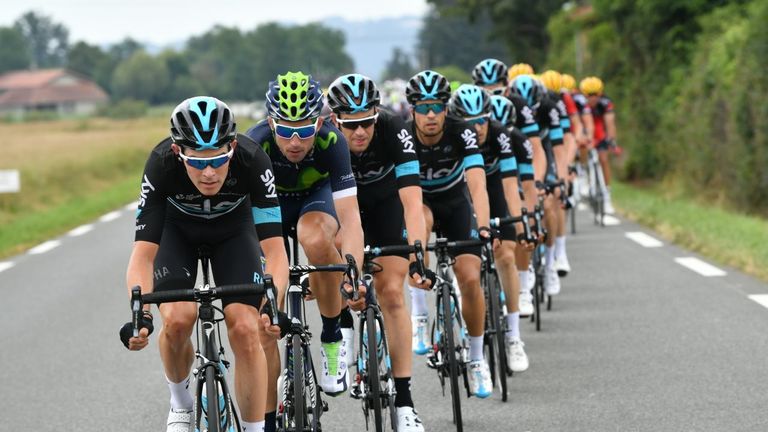
The 2016 Tour de France takes places from July 2-24.
Here are all the results and final standings...
General classification (after stage 21)
1 Chris Froome (GB) Team Sky, 89:04:48 2 Romain Bardet (Fra) Ag2r-La Mondiale, +4:05 3 Nairo Quintana (Col) Movistar, +4:21 4 Adam Yates (GB) Orica-BikeExchange, +4:42 5 Richie Porte (Aus) BMC Racing, +5:17 6 Alejandro Valverde (Esp) Movistar, +6:16 7 Joaquim Rodriguez (Esp) Katusha, +6:58 8 Louis Meintjes (RSA) Lampre-Merida, same time 9 Dan Martin (Irl) Etixx - Quick-Step, +7:04 10 Roman Kreuziger (Cze) Tinkoff, +7:11
- Transfer Centre LIVE! Felix, Toney, Ugarte latest
- Wood strikes for England's fourth wicket against Sri Lanka LIVE!
- Maresca to speak after Sterling, Chilwell left out of European squad
- Man Utd transfers: Panathinaikos agree Pellistri deal
- Chelsea to target striker after Felix signing and open to Sterling bids
- Liverpool transfers: Brentford and Leverkusen in Van den Berg battle
- Chelsea sign Felix as Gallagher joins Atletico Madrid
- Mercedes engineer 'Bono' will not join Hamilton at Ferrari
- Man City consider move for Celtic forward Kyogo
- How data gave Liverpool their edge: Lessons on how to win a title
- Latest News
Points classification (after stage 21)
1 Peter Sagan (Svk) Tinkoff, 470pts 2 Marcel Kittel (Ger) Etixx - Quick-Step, 228 3 Michael Matthews (Aus) Orica-BikeExchange, 199 4 Andre Greipel (Ger) Lotto Soudal, 178 5 Alexander Kristoff (Nor) Katusha, 172 6 Bryan Coquard (Fra) Direct Energie, 156 7 Thomas De Gendt (Bel) Lotto Soudal, 150 8 Greg Van Avermaet (Bel) BMC Racing, 136 9 Chris Froome (GB) Team Sky, 131 10 Rafal Majka (Pol) Tinkoff, 120
Tour de France guide
Tour de France favourites
How the teams compare
Ten riders to keep an eye on
Mountains classification (after stage 21)
1 Rafal Majka (Pol) Tinkoff, 209pts 2 Thomas De Gendt (Bel) Lotto Soudal, 130 3 Jarlinson Pantano (Col) IAM Cycling, 121 4 Ilnur Zakarin (Rus) Katusha, 84 5 Rui Costa (Por) Lampre-Merida, 76 6 Serge Pauwels (Bel) Dimension Data, 62 7 Stef Clement (Ned) IAM Cycling, 53 8 Vincenzo Nibali (Ita) Astana, 36 9 Kristijan Durasek (Cro) Lampre-Merida, 36 10 Thomas Voeckler (Fra) Direct Energie, 33
Youth classification (after stage 21)
1 Adam Yates (GB) Orica-BikeExchange, 89:09:30 2 Louis Meintjes (RSA) Lampre-Merida, +2:16 3 Emanuel Buchmann (Ger) Bora-Argon 18, +42:58 4 Warren Barguil (Fra) Giant-Alpecin, +47:32 5 Wilco Kelderman (Ned) LottoNL-Jumbo, +1:19:56 6 Julian Alaphilippe (Fra) Etixx - Quick-Step, +1:55:27 7 Jan Polanc (Slo) Lampre-Merida, +2:13:42 8 Eduardo Sepulveda (Arg) Fortuneo-Vital Concept, +2:23:45 9 Alexey Lutsenko (Kaz) Astana, 2:37:10 10 Patrick Konrad (Aut) Bora-Argon 18, +2:41:50
Stage results
Stage 21 1 Andre Greipel (Ger) Lotto Soudal, 2:43:08 2 Peter Sagan (Svk) Tinkoff, same time 3 Alexander Kristoff (Nor) Katusha, st 4 Edvald Boasson Hagen (Nor) Dimension Data, st 5 Michael Matthews (Aus) Orica-BikeExchange, st 6 Jasper Stuyven (Bel) Trek-Segafredo, st 7 Ramunas Navardauskas (Ltn) Cannondale-Drapac, st 8 Christophe Laporte (Fra) Cofidis, st 9 Sam Bennett (Irl) Bora-Argon 18, st 10 Reinardt Janse van Rensburg (RSA) Dimension Data, st
Stage 20 1 Ion Izagirre (Esp) Movistar, 4:06:45 2 Jarlinson Pantano (Col) IAM Cycling, +19sec 3 Vincenzo Nibali (Ita) Astana, +42 4 Julian Alaphilippe (Fra) Etixx - Quick-Step, +49 5 Rui Costa (Por) Lampre-Merida, +1:43 6 Roman Kreuziger (Cze) Tinkoff, +1:44 7 Wilco Kelderman (Ned) LottoNL-Jumbo, +1:49 8 Joaquim Rodriguez (Esp) Katusha, +3:24 9 Dan Martin (Irl) Etixx - Quick-Step, +4:12 10 Romain Bardet (Fra) Ag2r-La Mondiale, same time
Stage 19 1 Romain Bardet (Fra) Ag2r-La Mondiale, 4:14:08 2 Joaquim Rodriguez (Esp) Katusha, +23sec 3 Alejandro Valverde (Esp) Movistar, same time 4 Louis Meintjes (RSA) Lampre-Merida, st 5 Nairo Quintana (Col) Movistar, +26 6 Fabio Aru (Ita) Astana, +28 7 Dan Martin (Irl) Etixx - Quick-Step, st 8 Wout Poels (Ned) Team Sky, +36 9 Chris Froome (GB) Team Sky, st 10 Richie Porte (Aus) BMC Racing, +53
Stage 18 1 Chris Frooome (GB) Team Sky, 30:43 2 Tom Dumoulin (Ned) Giant-Alpecin, +21sec 3 Fabio Aru (Ita) Astana, +33 4 Richie Porte (Aus) BMC Racing, same time 5 Romain Bardet (Fra) Ag2r-La Mondiale, +42 6 Thomas De Gendt (Bel) Lotto Soudal, +1:02 7 Ion Izagirre (Esp) Movistar, +1:03 8 Joaquim Rodriguez (Esp) Katusha, +1:05 9 Louis Meintjes (RSA) Lampre-Merida, +1:08 10 Nairo Quintana (Col) Movistar, +1:10
Stage 17 1 Ilnur Zakarin (Rus) Katusha, 4:36:33 2 Jarlinson Pantano (Col) IAM Cycling, +55sec 3 Rafal Majka (Pol) Tinkoff, +1:26 4 Kristijan Durasek (Cro) Lampre-Merida, +1:32 5 Brice Feillu (Fra) Fortuneo-Vital Concept, +2:33 6 Thomas Voeckler (Fra) Direct Energie, +2:46 7 Domenico Pozzovivo (Ita) Ag2r-La Mondiale, +2:50 8 Stef Clement (Ned) IAM Cycling, +2:57 9 Steve Morabito (Sui) FDJ.fr, +4:38 10 Richie Porte (Aus) BMC Racing, +7:59
Stage 16 1 Peter Sagan (Svk) Tinkoff, 4:26:02 2 Alexander Kristoff (Nor) Katusha, same time 3 Sondre Holst Enger (Nor) IAM Cycling, st 4 John Degenkolb (Ger) Giant-Alpecin, st 5 Michael Matthews (Aus) Orica-BikeExchange, st 6 Fabian Cancellara (Sui) Trek-Segafredo, st 7 Sep Vanmarcke (Bel) LottoNL-Jumbo, st 8 Ariel Richeze (Arg) Etixx - Quick-Step, st 9 Edvald Boasson Hagen (Nor) Dimension Data, st 10 Greg Van Avermaet (Bel) BMC Racing, st
Stage 15 1 Jarlinson Pantano (Col) IAM Cycling, 4:24:49 2 Rafal Majka (Pol) Tinkoff, same time 3 Alexis Vuillermoz (Fra) Ag2r-La Mondiale, +6sec 4 Sebastien Reichenbach (Sui) FDJ.fr, sat 5 Julian Alaphilippe (Fra) Etixx - Quick-Step, +22 6 Serge Pauwels (Bel) Dimension Data, +25 7 Pierre Rolland (Fra) Cannondale-Drapac, st 8 Ilnur Zakarin (Rus) Katusha, +1:30 9 Daniel Navarro (Esp) Cofidis, st 10 Tom-Jelte Slagter (Ned) Cannondale-Drapac, +2:08
Stage 14 1 Mark Cavendish (GB) Dimension Data, 5:43:49 2 Alexander Kristoff (Nor) Katusha, same time 3 Peter Sagan (Svk) Tinkoff, st 4 John Degenkolb (Ger) Giant-Alpecin, st 5 Marcel Kittel (Ger) Etixx - Quick-Step, st 6 Andre Greipel (Ger) Lotto Soudal, st 7 Bryan Coquard (Fra) Direct Energie, st 8 Davide Cimolai (Ita) Lampre-Merida, st 9 Christophe Laporte (Fra) Cofidis, st 10 Samuel Dumoulin (Fra) Ag2r-La Mondiale, st
Stage 13 1 Tom Dumoulin (Ned) Giant-Alpecin, 50:15 2 Chris Froome (GB) Team Sky, +1:03 3 Nelson Oliveira (Por) Movistar, +1:31 4 Jerome Coppel (Fra) IAM Cycling, +1:35 5 Rohan Dennis (Aus) BMC Racing, +1:41 6 Bauke Mollema (Ned) Trek-Segafredo, +1:54 7 Geraint Thomas (GB) Team Sky, +2:00 8 Ion Izagirre (Esp) Movistar, +2:02 9 Tony Martin (Ger) Etixx - Quick-Step, +2:05 10 Steve Cummings (GB) Dimension Data, +2:24
Stage 12 1 Thomas De Gendt (Bel) Lotto Soudal, 4:31:51 2 Serge Pauwels (Bel) Dimension Data, +2sec 3 Daniel Navarro (Esp) Cofidis, +14 4 Stef Clement (Ned) IAM Cycling, +40 5 Sylvain Chavanel (Fra) Direct Energie, same time 6 Bert-Jan Lindeman (Ned) LottoNL-Jumbo, +2:52 7 Daniel Teklehaimanot (Eri) Dimension Data, +3:13 8 Sep Vanmarcke (Bel) LottoNL-Jumbo, +3:26 9 Chris Anker Sorensen (Den) Fortuneo-Vital Concept, +4:23 10 Bauke Mollema (Ned) Trek-Segafredo, +5:05
Stage 11 1 Peter Sagan (Svk) Tinkoff, 3:26:23 2 Chris Froome (GB) Team Sky, same time 3 Maciej Bodnar (Pol) Tinkoff, st 4 Alexander Kristoff (Nor) Katusha, +6sec 5 Christophe Laporte (Fra) Cofidis, st 6 Jasper Stuyven (Bel) Trek-Segafredo, st 7 Edvald Boasson Hagen (Nor) Dimension Data, st 8 Andre Greipel (Ger) Lotto Soudal, st 9 Sondre Holst Enger (Nor) IAM Cycling, st 10 Oliver Naesen (Bel) IAM Cycling, st
Stage 10 1 Michael Matthews (Aus) Orica-BikeExchange, 4:22:38 2 Peter Sagan (Svk) Tinkoff, same time 3 Edvald Boasson Hagen (Nor) Dimension Data, st 4 Greg Van Avermaet (Bel) BMC Racing, st 5 Samuel Dumuolin (Fra) Ag2r-La Mondiale, st 6 Daryl Impey (RSA) Orica-BikeExchange, +2sec 7 Luke Durbridge (Aus) Orica-BikeExchange, +1:10 8 Damiano Caruso (Ita) BMC Racing, +3:01 9 Gorka Izagirre (Esp) Movistar, +3:10 10 Tony Galopin (Fra) Lotto Soudal, st
Stage nine 1 Tom Dumoulin (Ned) Giant-Alpecin, 5:16:24 2 Rui Costa (Por) Lampre-Merida, +38sec 3 Rafal Majka (Pol) Tinkoff, same time 4 Daniel Navarro (Esp) Cofidis, +1:39 5 Winner Anacona (Col) Movistar, +1:57 6 Thibaut Pinot (Fra) FDJ.fr, +2:30 7 George Bennett (NZ) LottoNL-Jumbo, +2:48 8 Diego Rosa (Ita) Astana, +2:52 9 Mathias Frank (Sui) IAM Cycling, +3:44 10 Adam Yates (GB) Orica-BikeExchange, +6:35
Stage eight 1 Chris Froome (GB) Team Sky, 4:57:33 2 Dan Martin (Irl) Etixx - Quick-Step, +13sec 3 Joaquim Rodriguez (Esp) Katusha, same time 4 Romain Bardet (Fra) Ag2r-La Mondiale, st 5 Roman Kreuziger (Cze) Tinkoff, st 6 Fabio Aru (Ita) Astana, st 7 Adam Yates (GB) Orica-BikeExchange, st 8 Alejandro Valverde (Esp) Movistar, st 9 Bauke Mollema (Ned) Trek-Segafredo, st 10 Richie Porte (Aus) BMC Racing, st
Stage seven 1 Steve Cummings (GB) Dimension Data, 3:48:09 2 Daryl Impey (RSA) Orica-BikeExchange, +1:04 3 Daniel Navarro (Esp) Cofidis, same time 4 Vincenzo Nibali (Ita) Astana, +1:58 5 Greg Van Avermaet (Bel) BMC Racing, +2:57 6 Luis Angel Mate (Esp) Cofidis, +3:37 7 Geraint Thomas (GB) Team Sky, same time 8 Wout Poels (Ned) Team Sky, st 9 Gorka Izagirre (Esp) Movistar, st 10 Alejandro Valverde (Esp) Movistar, st
Stage six 1 Mark Cavendish (GB) Dimension Data, 4:43:48 2 Marcel Kittel (Ger) Etixx - Quick-Step, same time 3 Dan McLay (GB) Fortuneo-Vital Concept, st 4 Alexander Kristoff (Nor) Katusha, st 5 Christophe Laporte (Fra) Cofidis, st 6 Peter Sagan (Svk) Tinkoff, st 7 Dylan Groenewegen (Ned) LottoNL-Jumbo, st 8 Edward Theuns (Bel) Trek-Segafredo, st 9 Bryan Coquard (Fra) Direct Energie, st 10 Shane Archbold (NZ) Bora-Argon 18, st
Stage five 1 Greg Van Avermaet (Bel) BMC Racing, 5:31:36 2 Thomas De Gendt (Bel) Lotto Soudal, +2:24 3 Rafal Majka (Pol) Tinkoff, +5:04 4 Joaquim Rodriguez (Esp) Katusha, same time 5 Dan Martin (Irl) Etixx - Quick-Step, +5:07 6 Bartosz Huzarski (Pol) Bora-Argon 18, st 7 Julian Alaphilippe (Fra) Etixx - Quick-Step, st 8 Adam Yates (GB) Orica-BikeExchange, st 9 Chris Froome (GB) Team Sky, st 10 Tejay van Garderen (USA) BMC Racing, st
Stage four 1 Marcel Kittel (Ger) Etixx - Quick-Step, 5:28:30 2 Bryan Coquard (Fra) Direct Energie, same time 3 Peter Sagan (Svk) Tinkoff, st 4 Dylan Groenewegen (Ned) LottoNL-Jumbo, st 5 Alexander Kristoff (Nor) Katusha, st 6 Sondre Holst Enger (Nor) IAM Cycling, st 7 Dan McLay (GB) Fortuneo-Vital Concept, st 8 Mark Cavendish (GB) Dimension Data, st 9 Samuel Dumoulin (Fra) Ag2r-La Mondiale, st 10 Simon Gerrans (Aus) Orica-BikeExchange, st
Stage three 1 Mark Cavendish (GB) Dimension Data, 5:59:54 2 Andre Greipel (Ger) Lotto Soudal, same time 3 Bryan Coquard (Fra) Direct Energie, st 4 Peter Sagan (Svk) Tinkoff, st 5 Edward Theuns (Bel) Trek-Segafredo, st 6 Sondre Holst Enger (Nor) IAM Cycling, st 7 Marcel Kittel (Ger) Etixx - Quick-Step, st 8 Christophe Laporte (Fra) Cofidis, st 9 Dan McLay (GB) Fortuneo-Vital Concept, st 10 Dylan Groenewegen (Ned) LottoNL-Jumbo, st
Stage two 1 Peter Sagan (Svk) Tinkoff, 4:20:51 2 Julian Alaphilippe (Fra) Etixx - Quick-Step, same time 3 Alejandro Valverde (Esp) Movistar, st 4 Dan Martin (Irl) Etixx - Quick-Step, st 5 Michael Matthews (Aus) Orica-BikeExchange, st 6 Wilco Kelderman (Ned) LottoNL-Jumbo, st 7 Tony Gallopin (Fra) Lotto Soudal, st 8 Greg Van Avermaet (Bel) BMC Racing, st 9 Bauke Mollema (Ned) Ned) Trek-Segafredo, st 10 Chris Froome (GB) Team Sky, st
Stage one 1 Mark Cavendish (GB) Dimension Data, 4:14:05 2 Marcel Kittel (Ger) Etixx - Quick-Step, same time 3 Peter Sagan (Svk) Tinkoff, st 4 Andre Greipel (Ger) Lotto Soudal, st 5 Edward Theuns (Bel) Trek-Segafredo, st 6 Christophe Laporte (Fra) Cofidis, st 7 Bryan Coquard (Fra) Direct Energie, st 8 Alexander Kristoff (Nor) Katusha, st 9 Dan McLay (GB) Fortuneo-Vital Concept, st 10 Greg Henderson (NZ) Lotto Soudal, st

- Upgrade Now

Stream the Premier League and 1000+ EFL games this season with NOW!
UK Edition Change
- UK Politics
- News Videos
- Paris 2024 Olympics
- Rugby Union
- Sport Videos
- John Rentoul
- Mary Dejevsky
- Andrew Grice
- Sean O’Grady
- Photography
- Theatre & Dance
- Culture Videos
- Fitness & Wellbeing
- Food & Drink
- Health & Families
- Royal Family
- Electric Vehicles
- Car Insurance Deals
- Lifestyle Videos
- UK Hotel Reviews
- News & Advice
- Simon Calder
- Australia & New Zealand
- South America
- C. America & Caribbean
- Middle East
- Politics Explained
- News Analysis
- Today’s Edition
- Home & Garden
- Broadband deals
- Fashion & Beauty
- Travel & Outdoors
- Sports & Fitness
- Climate 100
- Sustainable Living
- Climate Videos
- Solar Panels
- Behind The Headlines
- On The Ground
- Decomplicated
- You Ask The Questions
- Binge Watch
- Travel Smart
- Watch on your TV
- Crosswords & Puzzles
- Most Commented
- Newsletters
- Ask Me Anything
- Virtual Events
- Wine Offers
- Betting Sites
Thank you for registering
Please refresh the page or navigate to another page on the site to be automatically logged in Please refresh your browser to be logged in
Tour de France 2016: Route, favourites, odds, Team Sky's chances and how to watch – everything you need to know
Can chris froome ride to a third overall victory in the world's biggest bike race, article bookmarked.
Find your bookmarks in your Independent Premium section, under my profile
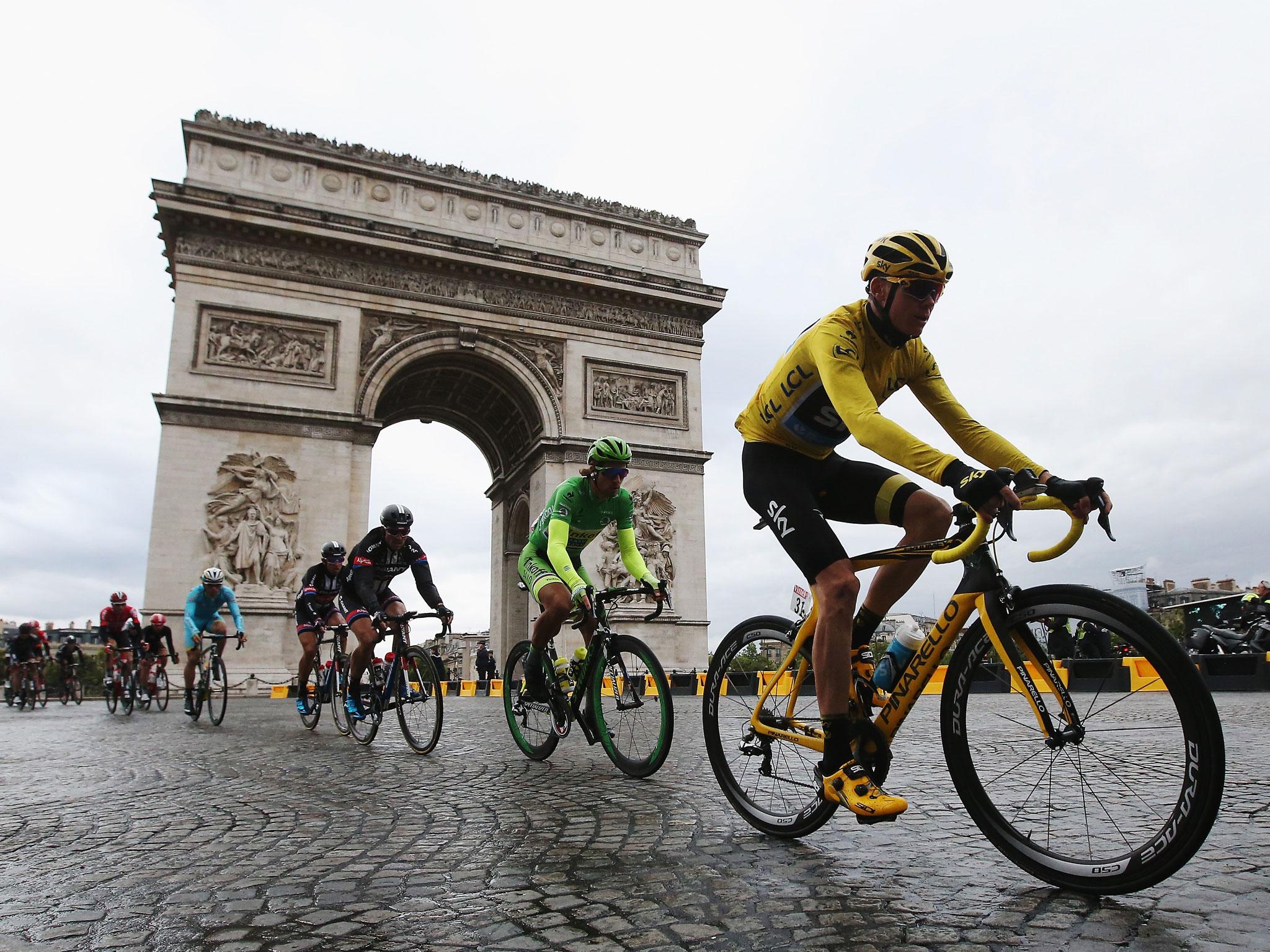
Sign up to our free sport newsletter for all the latest news on everything from cycling to boxing
Sign up to our free sport email for all the latest news, thanks for signing up to the sport email.
The sheer numbers involved with the Tour de France demonstrate its status as a sporting event like no other.
On Saturday 2 July, 198 riders from 22 teams will set out to compete in the 103rd edition of the race. On the evening of Sunday 24 July, after riding more than 3,500km on a route that includes forays into Andorra, Spain and Switzerland, the remnants of the peloton will finish in Paris. There, one rider will receive the iconic yellow jersey and €500,000 awarded to the race winner.
Along the way, riders will be cheered on by millions of roadside fans, be escorted by tens of thousands of gendarmes, and follow a publicity caravan comprising 170 colourfully-arrayed vehicles and populated by almost 500 permanently enthusiastic staff.
Here is everything you need to know about the 2016 edition of the world’s biggest bike race:
After Yorkshire hosted the Grand Départ in 2014, and Utrecht was given in the honour last year, the race organisers have opted to begin this edition of the Tour de France in… France. The backdrop, however, is stunning: Mont St Michel, the spectacular Benedictine island monastery connected to the coast of Normandy by a one-kilometre causeway.
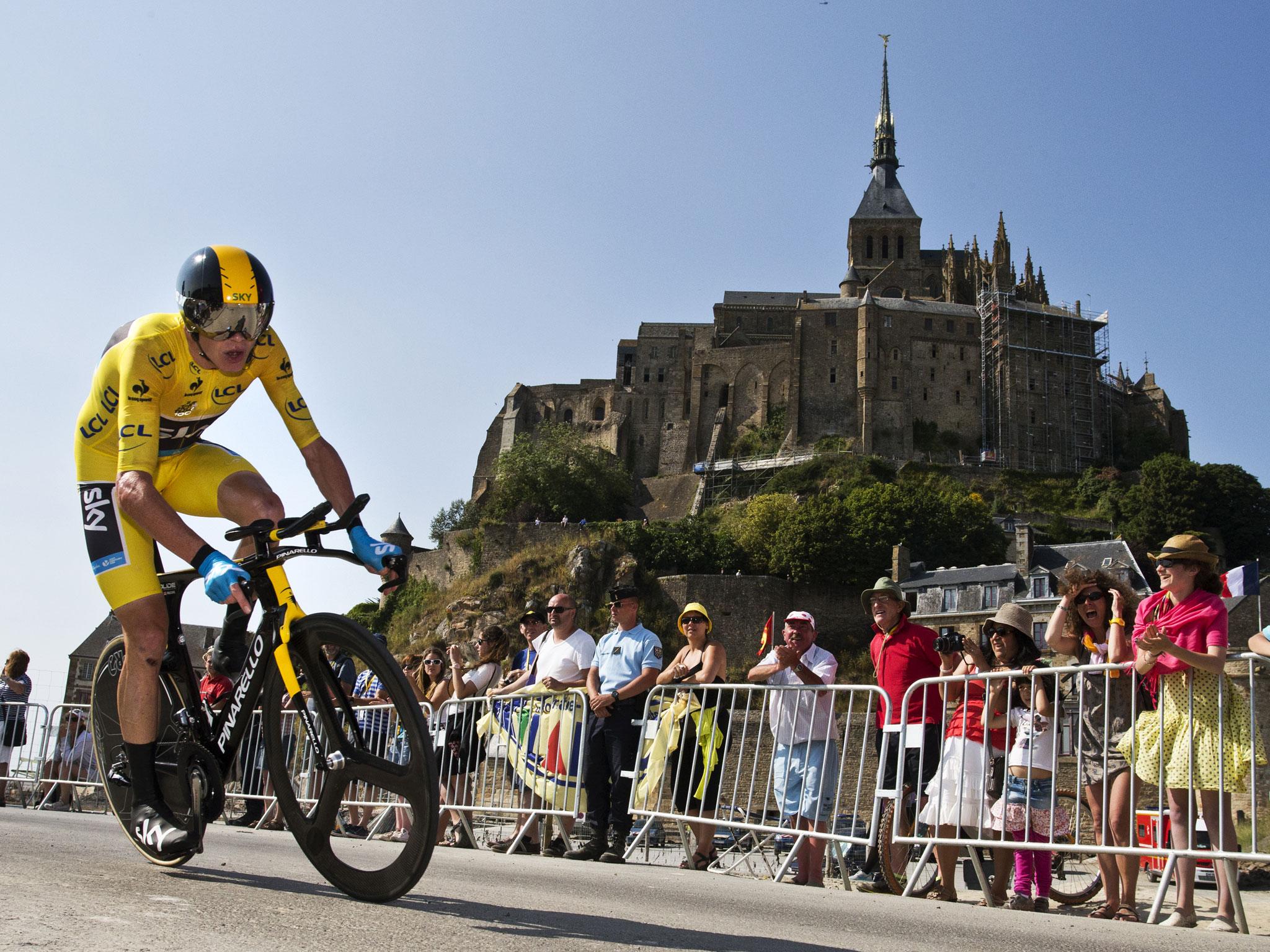
The route, on the whole, seems designed for aggression rather than attrition, with fewer draining summit finishes and the onus on short, exciting mountain stages. That said, Bastille Day’s stage 12 ends atop one of the Tour’s most iconic climbs, Mont Ventoux, while stage 9 to Andorra Arcalis finishes a dizzying 2,240m above sea level.
In total, of the race’s 3,519 kilometres counter-clockwise around France, just 54km are against the clock. However, the two time trials are hilly and technical, and could prove decisive in the race for the yellow jersey.
The favourites
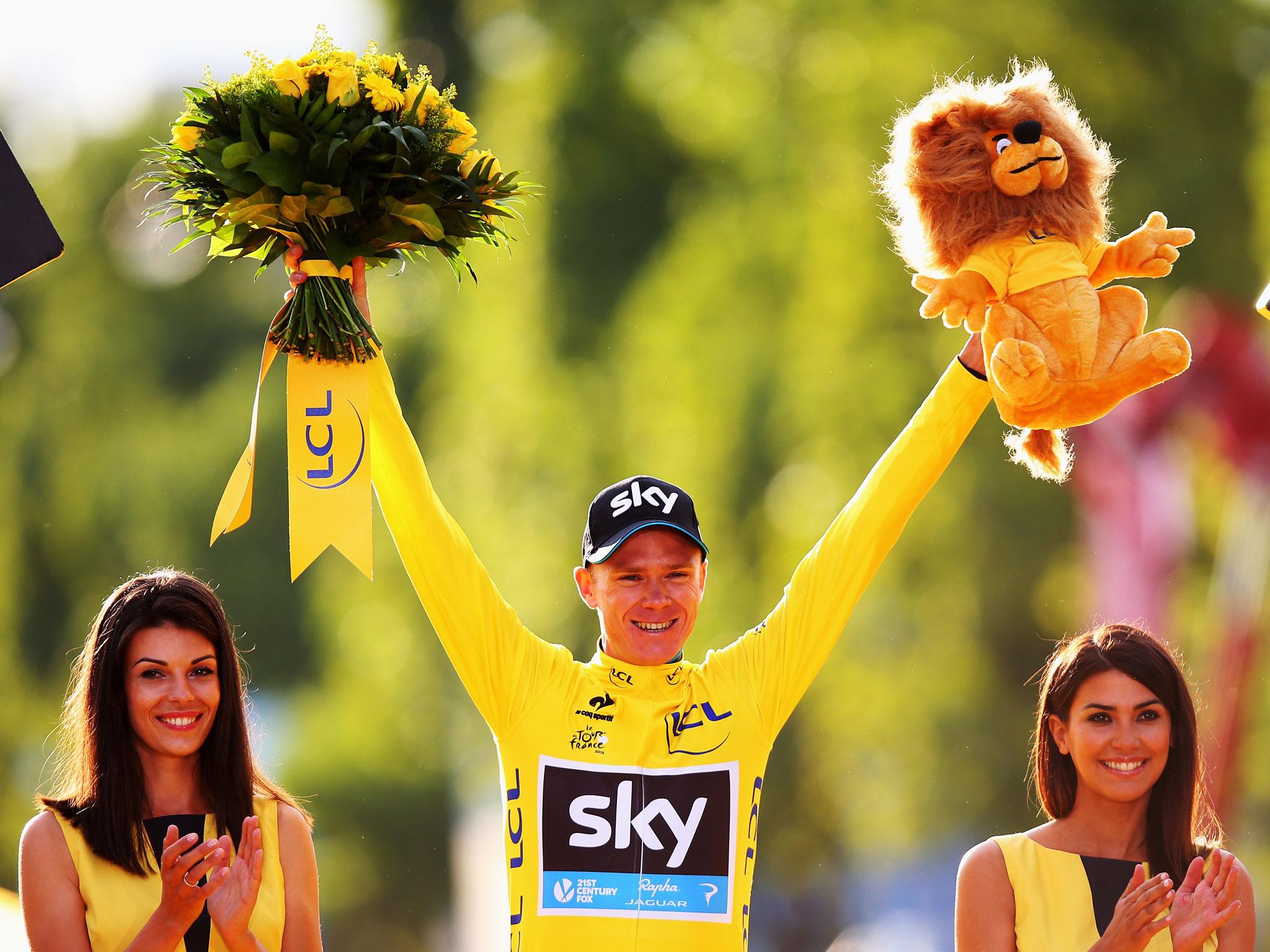
Chris Froome (6/4 – odds from Oddschecker ): The reigning champion had a quiet start to the season, but his impressive Critérium du Dauphiné victory was a powerful statement of intent – the 31-year-old has preluded both of his previous Tour wins with Dauphiné success.
Backed up by arguably the strongest all-round squad Team Sky has ever assembled, and with a balanced route that suits his all-round strengths, Froome enters the race as the undoubted man to beat.
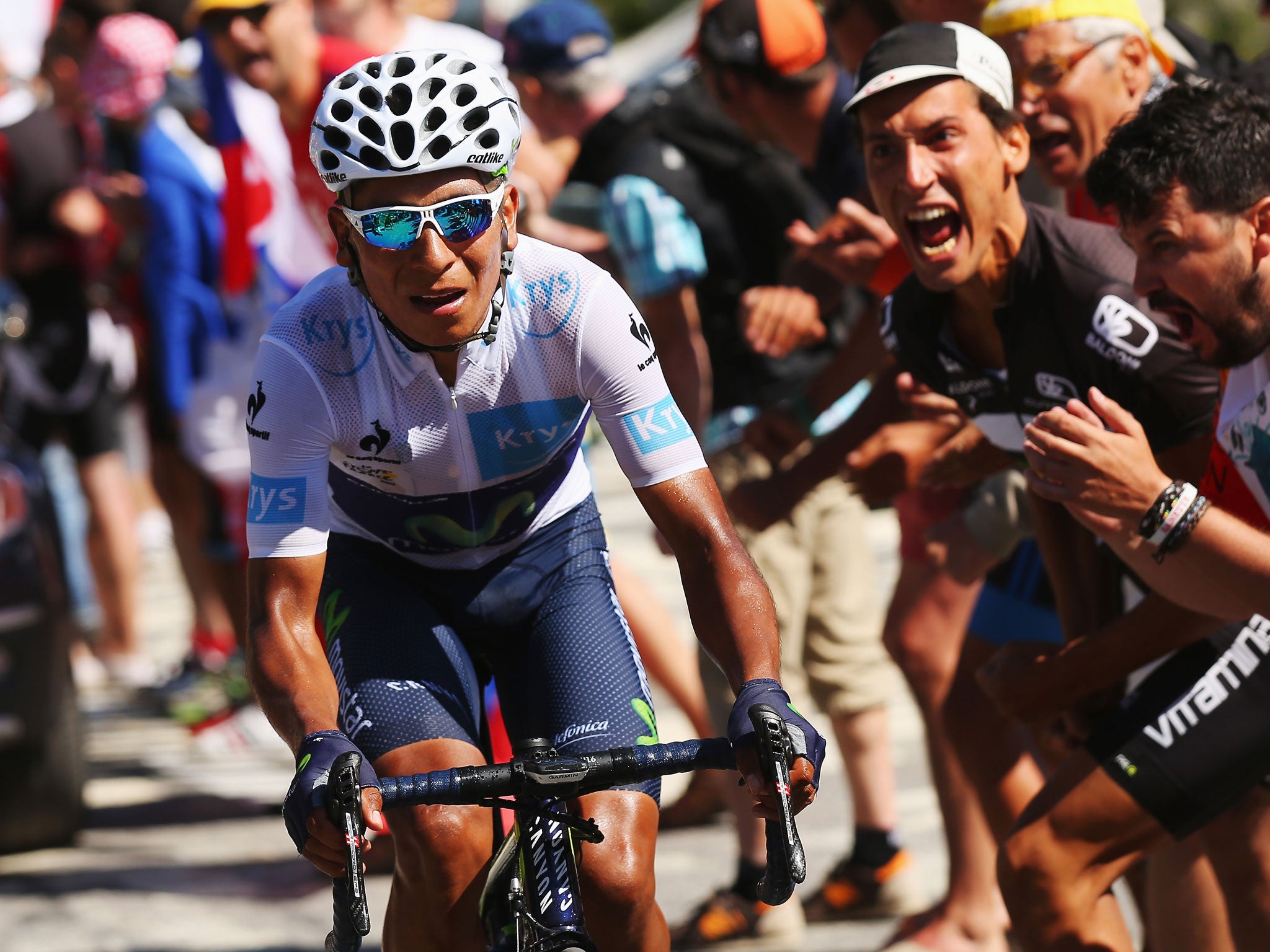
Nairo Quintana (2/1): The diminutive Colombian climber has twice finished runner up to Froome, narrowing 2013’s deficit of 4:20 to 1.12 last year, and impressive early season victories at the Volta a Catalunya and Tour de Romandie suggest he is only continuing to improve.
The 26-year-old cannot count on the quite such formidable team support as Froome, but should be equally as comfortable on a parcours whose only time trial stages are distinctly lumpy. He is a slow starter to Grand Tours, but expect fireworks if he is within striking distance as the race enters its third week.
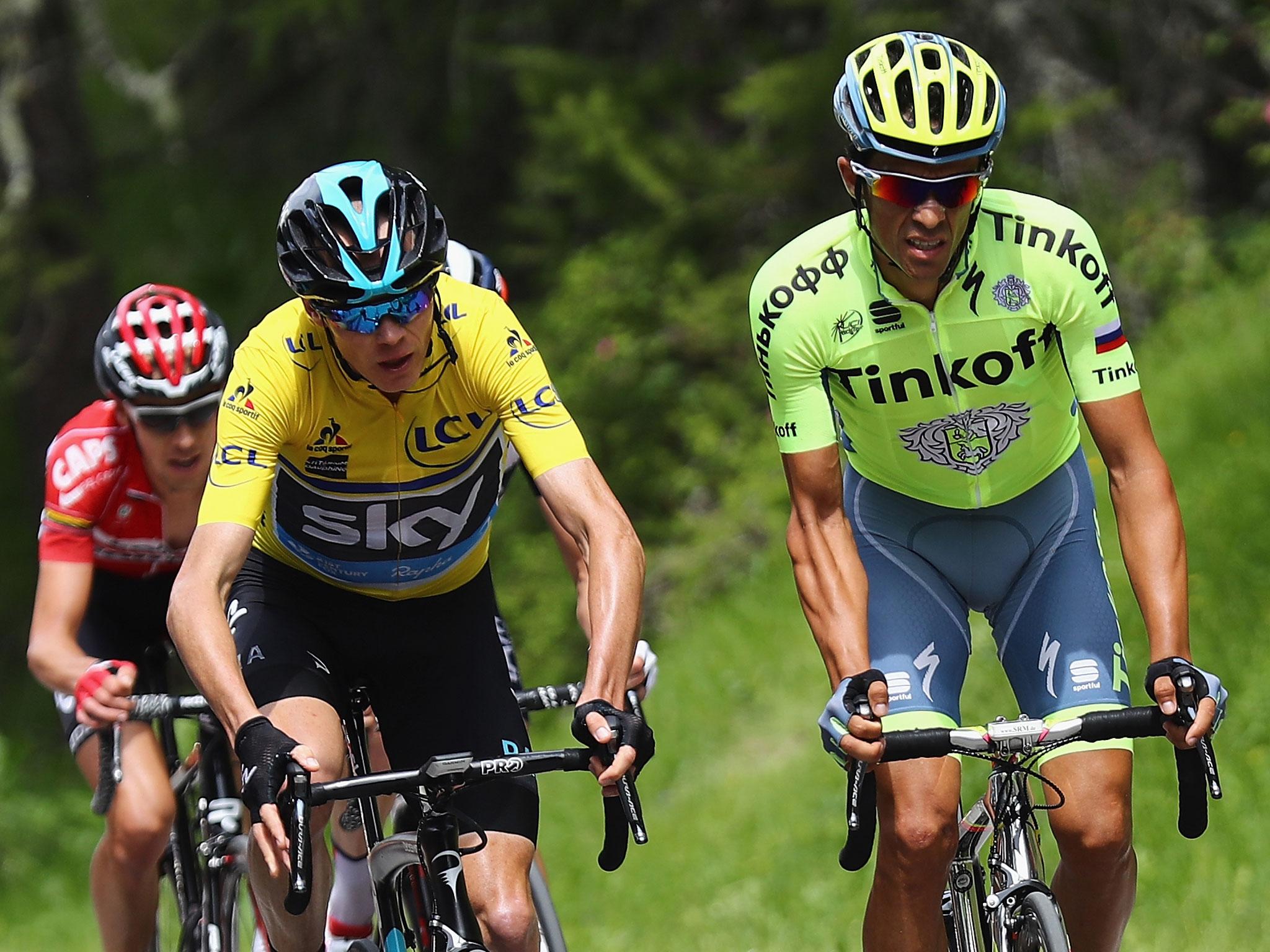
Alberto Contador (13/2): At 33, the most decorated Grand Tour rider of his generation is running out of opportunities to add to the yellow jerseys he won in 2007 and 2009, and has not finished on the podium since his 2010 title was retrospectively stripped from him for a doping offence.
Despite promising early-season form, Froome looked a class above him in the Dauphiné. However, a route that encourages nous rather than attrition perhaps suits the Spaniard most of all, with several downhill finishes providing an opportunity for a skilful descender to gain time with an ambush on his rivals.
The outsiders
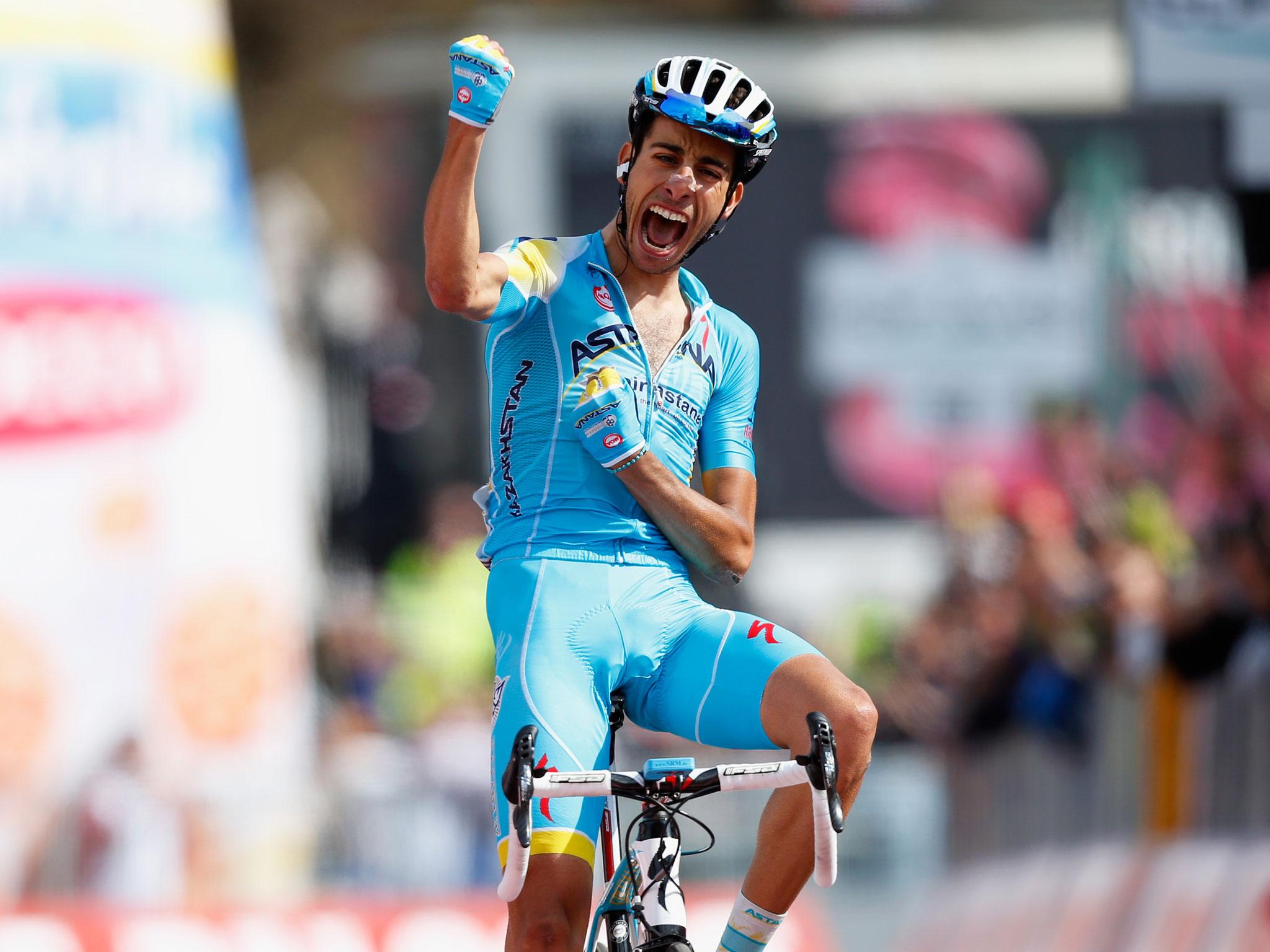
Fabio Aru (18/1): After a stellar 2015, in which he won the Vuelta a España and took two stages and second overall at the Giro D’Italia, the Italian makes his Tour debut backed by super-domestique and former race winner Vincenzo Nibali. The Astana rider’s quiet early-season form was boosted by a fine, daring stage win at the Dauphiné.
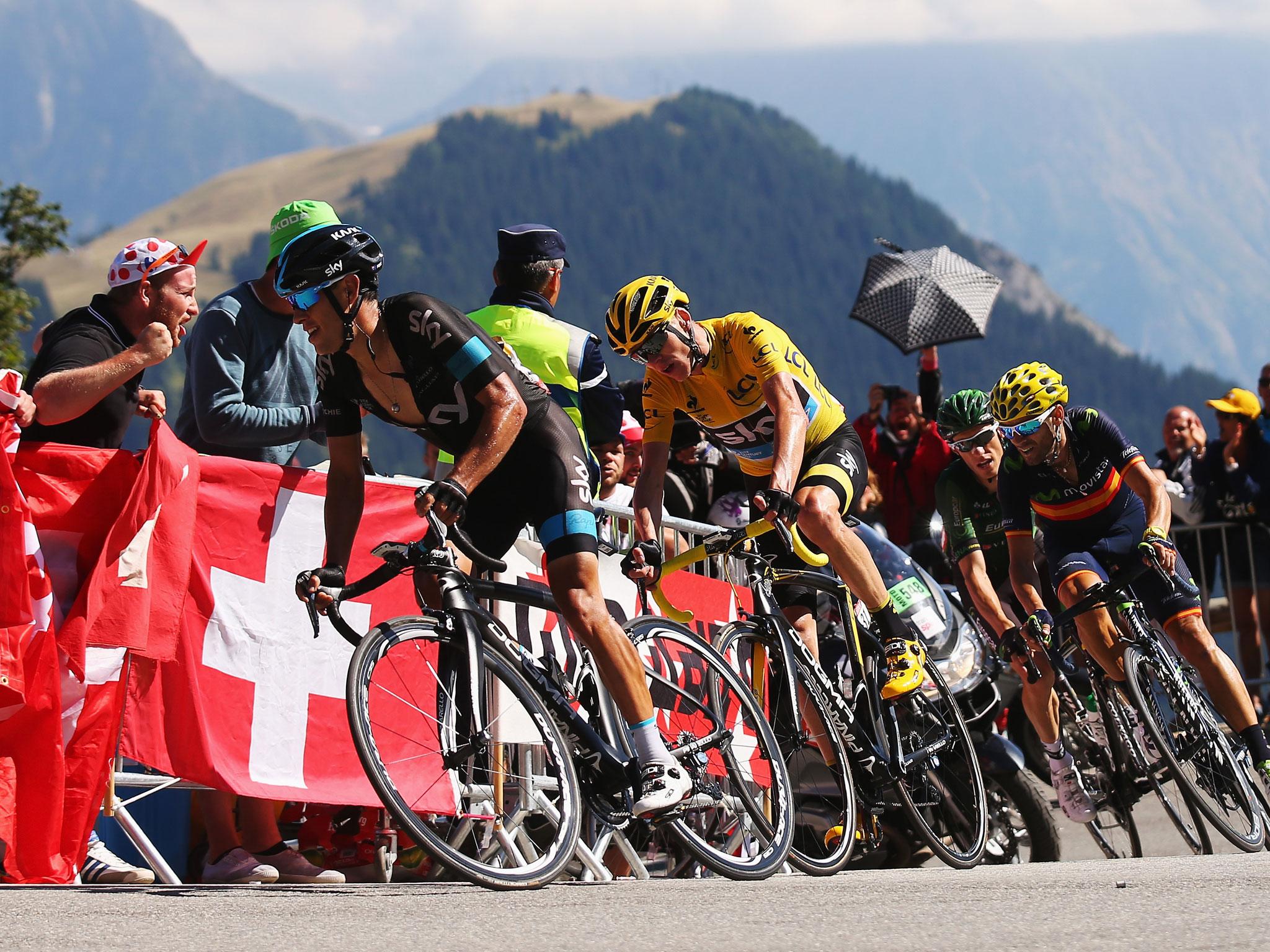
Richie Porte (20/1) : Froome’s erstwhile, loyal lieutenant was a key player in both of his Tour victories. The 31-year-old will share team leadership of BMC with Tejay van Garderen (who spent years waiting in the wings behind Cadel Evans, another Australian). Doubts remain about Porte’s capacity to last a full three weeks.
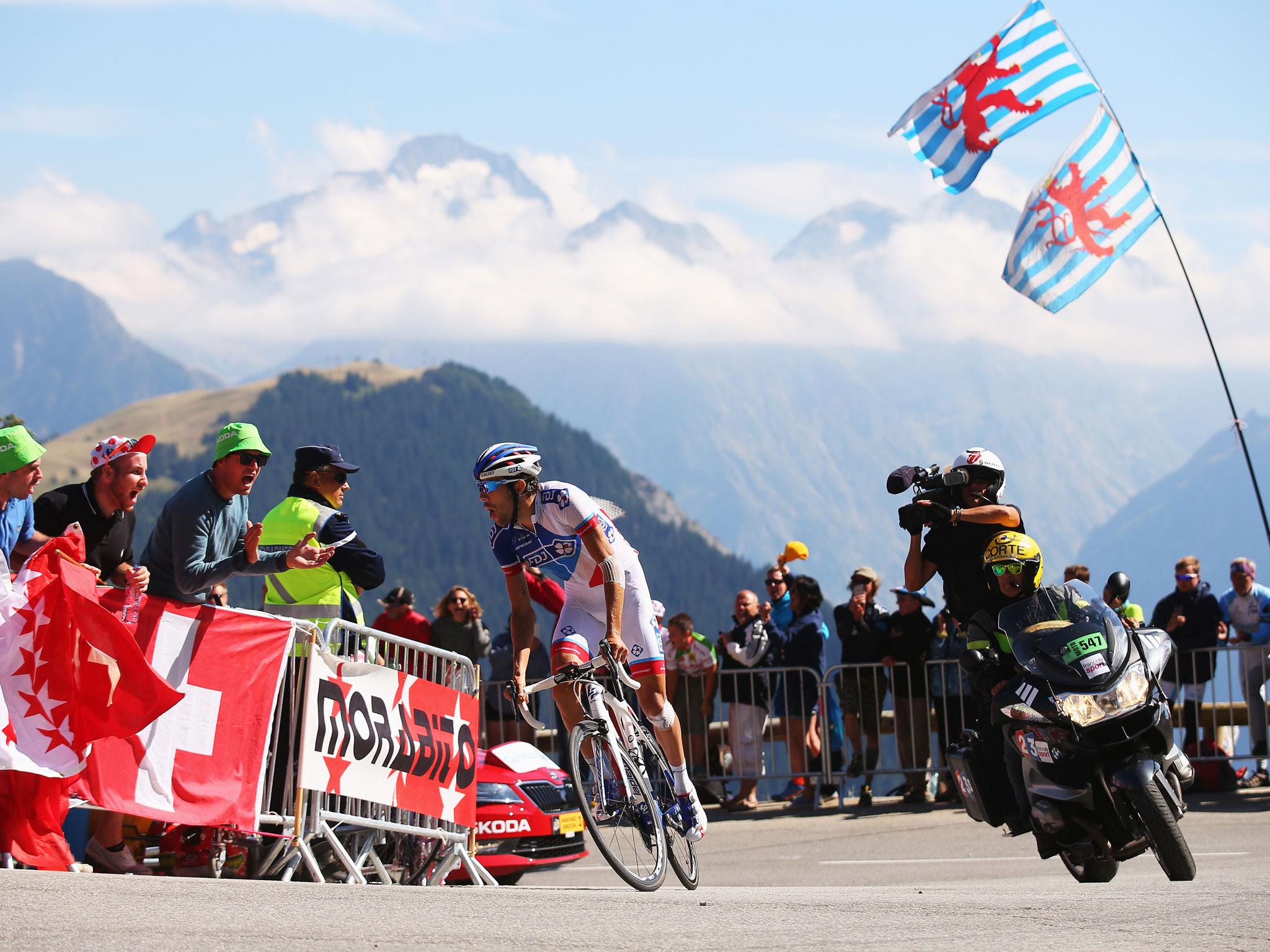
Thibaut Pinot (22/1): A white jersey and third-place overall in 2014 was followed by a disappointing 16th place in last year’s race, albeit with a stage win on l’Alpe D’Huez. This year, however, the Frenchman has been in excellent form, with a time trial victory over Tom Dumoulin in the Tour de Romandie demonstrating his improvement against the clock.
The sprinters
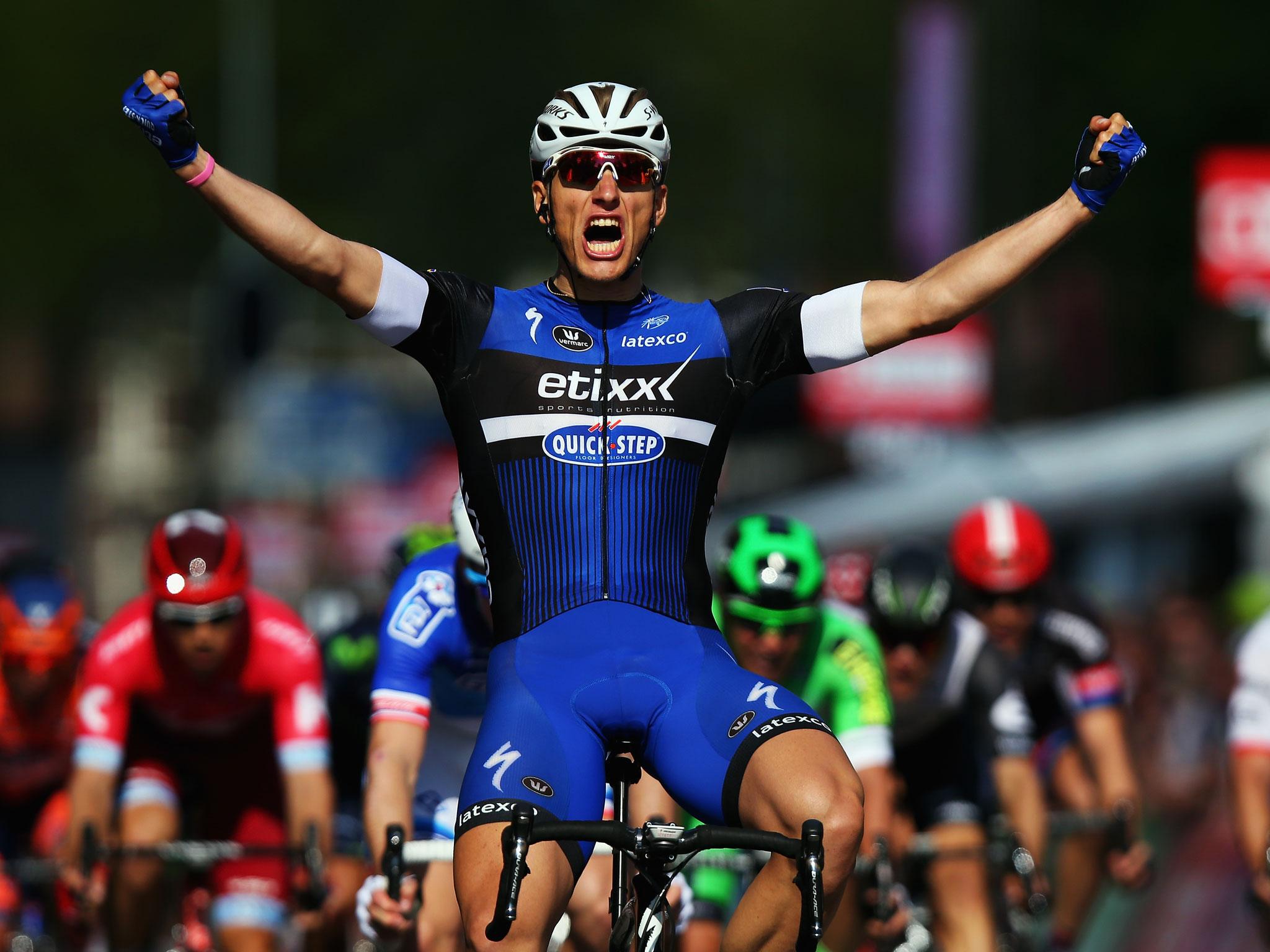
Marcel Kittel: Kittel won the opening stage at the last two Tours he rode (the first of four stages in each race) and, after a dire 2015, is back to his best this year. Consecutive stage wins in the first week of the Giro d’Italia demonstrated that, when fit, the 28-year-old is undoubtedly the fastest sprinter in the world.
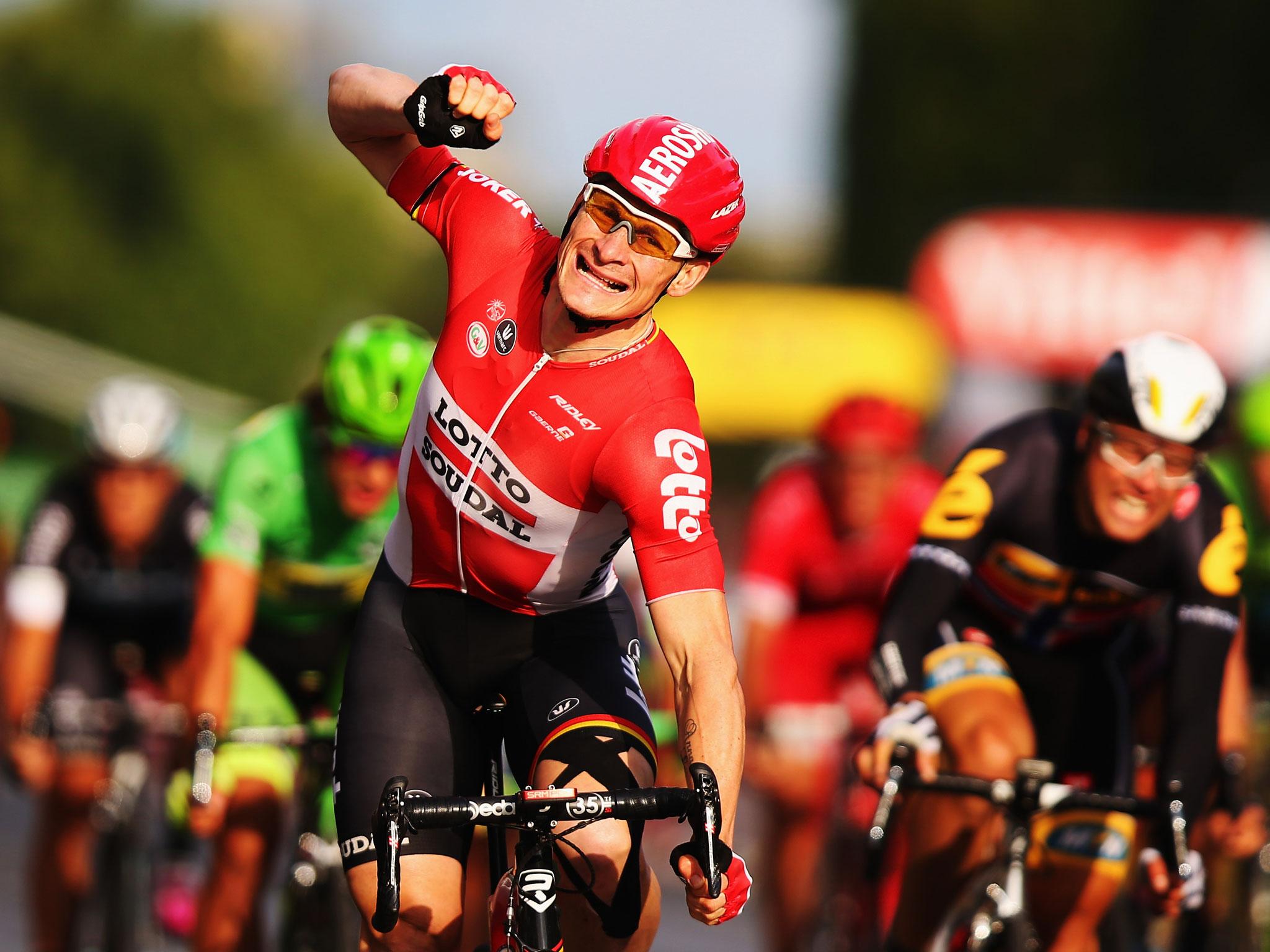
Andre Greipel: In Kittel’s absence, and with Mark Cavendish out of sorts, Greipel was the dominant sprinter in last year’s race, capping off four stage victories with a first career win on the Champs Elysées. The German goes into the race having beaten his compatriot Kittel in the national championships, and with three Giro d’Italia stage wins under his belt.
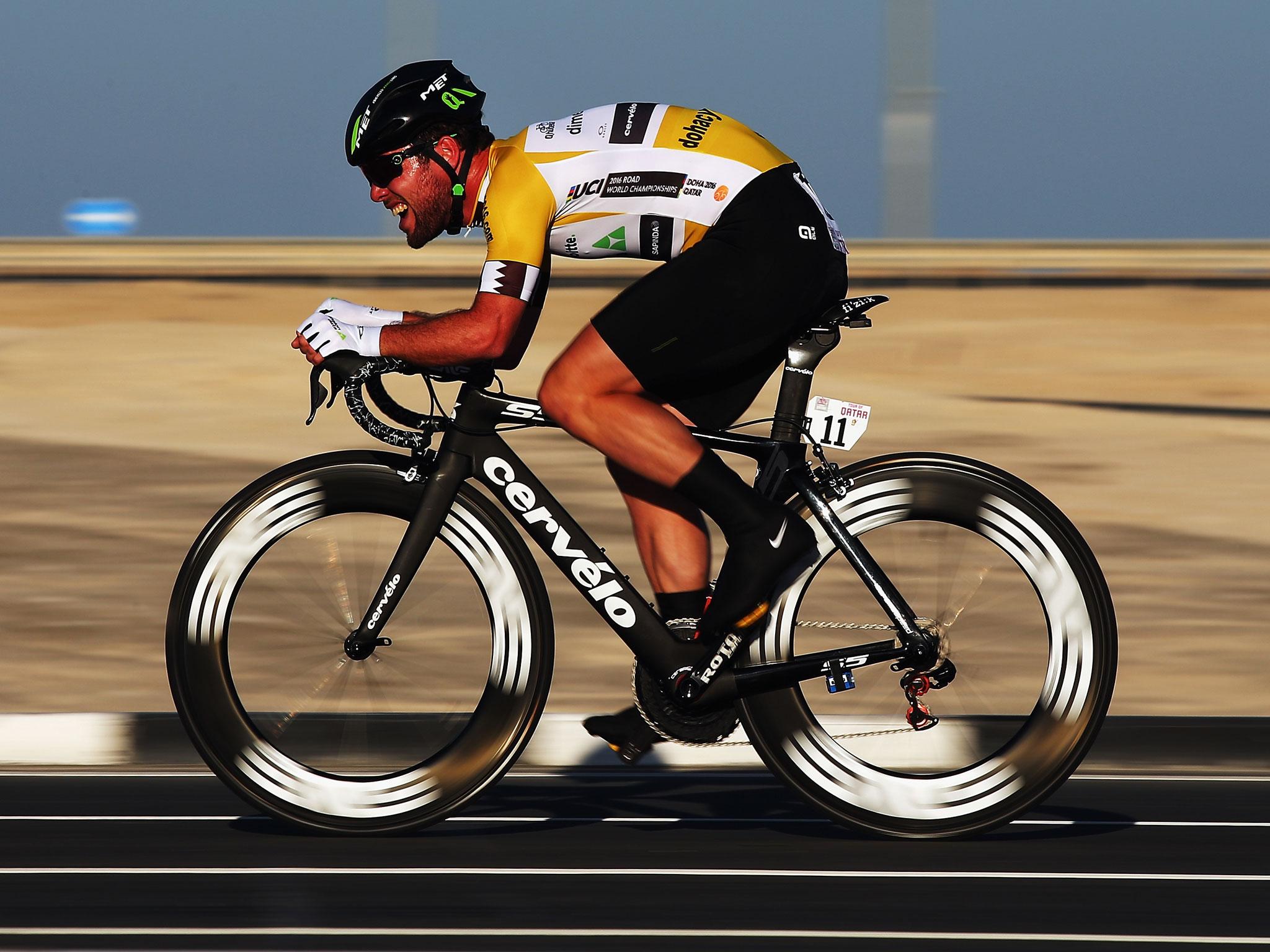
Mark Cavendish: This season the former World Champion has not enjoyed the successes of his German rivals: a total of three stage victories and the overall title at the Tour of Qatar represent an unusually modest return for the Manxman. However, Cavendish has proved time and again it is foolish to write off a rider who, with 26 stages, is the most successful sprinter in the race’s history. Victory on the opening day to Utah Beach would mean the 31-year-old finally gets the chance to wear the yellow jersey – something that has eluded him thus far.
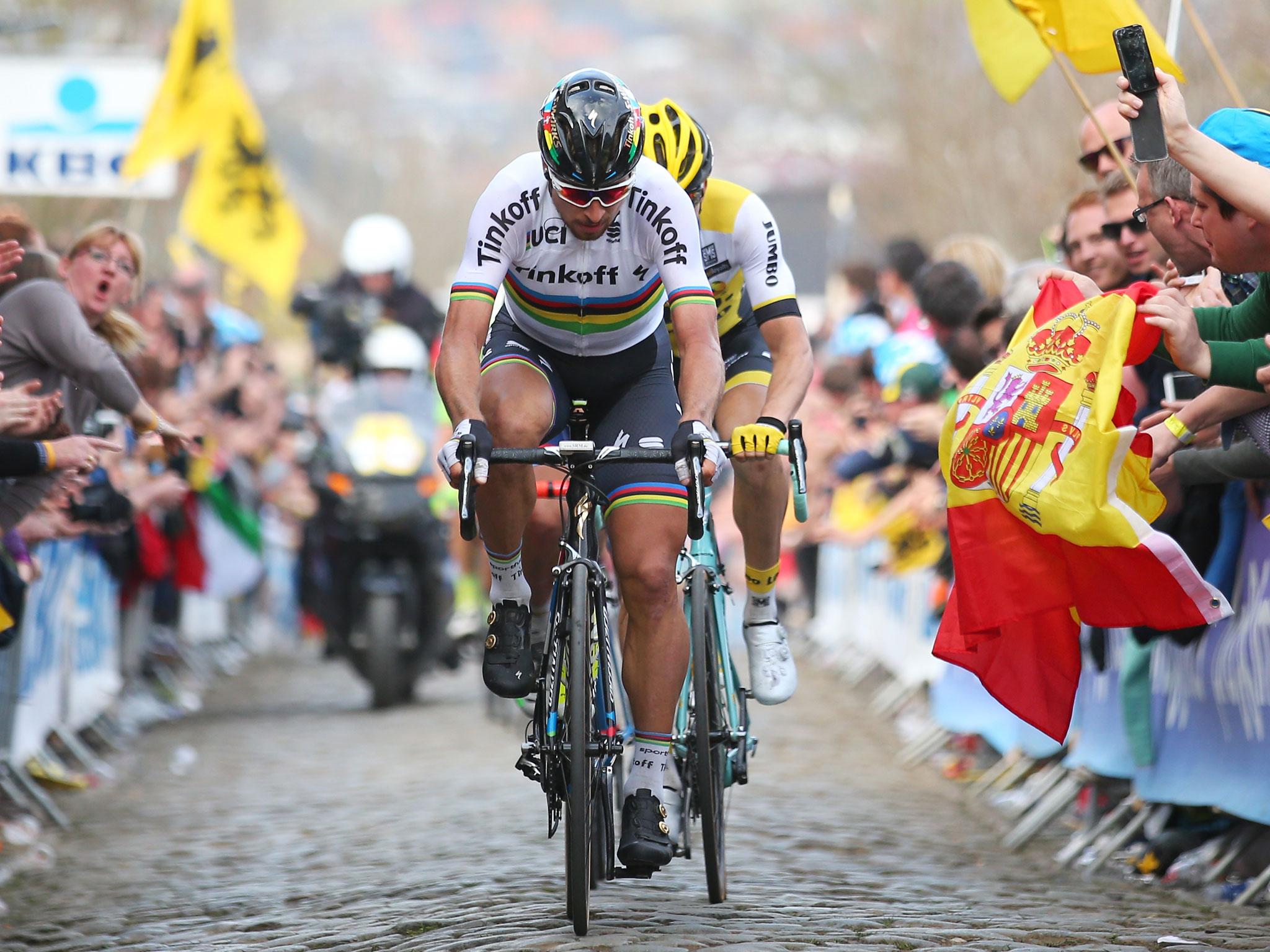
Peter Sagan: The Slovakian’s consistency across all terrain has enabled him to win the Tour’s green jersey four years in a row, despite last winning a stage in 2013. The reigning World Champion has avoided the curse of the rainbow jersey with a string of victories this season, most notably the Tour of Flanders, so expect him to make it five in a row here.
How to watch
Every stage is broadcast live on ITV4, Eurosport 1 and S4C. Highlights at 7.00pm every night on ITV4, from between 8.30pm and 9.40pm on Eurosport and at 10.00pm on S4C.
Join our commenting forum
Join thought-provoking conversations, follow other Independent readers and see their replies
Subscribe to Independent Premium to bookmark this article
Want to bookmark your favourite articles and stories to read or reference later? Start your Independent Premium subscription today.
New to The Independent?
Or if you would prefer:
Hi {{indy.fullName}}
- My Independent Premium
- Account details
- Help centre
To revisit this article, visit My Profile, then View saved stories .
- The Big Story
- Newsletters
- Steven Levy's Plaintext Column
- WIRED Classics from the Archive
- WIRED Insider
- WIRED Consulting
If you buy something using links in our stories, we may earn a commission. Learn more.
The science behind Chris Froome and Team Sky's Tour de France preparations
When Chris Froome is racing, he imagines he has a bag of coins to spend. Every time he wastes energy, he needs to pay. He pays whenever he's pedalling against the wind. He pays when he moves up the peloton during a climb instead of waiting for a flat road where he can get maximum drag off the riders around him. He even pays for trivial manoeuvres such as collecting bidons of water from the support car that follows riders during a race. He pays because all these moments imply an acceleration, an intensification of effort that puts Froome in the red.
In physiological terms, the moment that requires payment is called the threshold: the point beyond which you cannot ride comfortably for a long period of time. At any given stage of a race, Froome will try to spend as little time over that threshold as possible, even if that means losing his position within the group. Froome is attuned to it. As he crosses that threshold, he starts feeling his body screaming at him to slow down. He starts breathing faster as his muscles demand more oxygen.
Then comes the pain. When it comes, he embraces it, knowing that it's highly likely that his rivals are in even more discomfort. He might look around the peloton checking for symptoms in the riders' body language. Alberto Contador, the Spaniard from team Tinkoff and winner of all three Grand Tours - Tour de France, Giro d'Italia and Vuelta a España - hides it well, grimacing for just a second. Nairo Quintana, from Colombia, sits very still on the bike, his face expressionless.
Froome, on the other hand, is perhaps the most obvious in his suffering. Elbows out, head down, ungraceful. But pain is sometimes a signal for Froome to make his move, especially if he has made his savings, carefully considering the energy that went into every single pedal stroke. He knows that when it comes to the final climb at a key stage of a Grand Tour, the rider with the most coins left is the one most likely to win.
That's what happened during stage ten of the 2015 Tour de France . It was the first mountain of the Tour, a hilly 166km stretch of road between Tarbes and La Pierre-Saint-Martin in the Pyrenees that finished at an elevation of 1,610m after 15.3km of climbing. Froome, who weighed 67.5kg at the time, averaged a power of 414 Watts during that climb. With 6.5km to go, he accelerated for 24 seconds, averaging 556 Watts. It was a devastating attack that left Quintana, his nearest opponent, for dust, and a performance so spectacular that journalists questioned its provenance.
In the subsequent press conference, Tim Kerrison, Froome's coach, told reporters that it was not unexpected considering some of the numbers the rider had achieved in the past. For instance, Froome's average power over 60 minutes, including the run-in to the climb, was 366 Watts, and Kerrison pointed out that Froome had exceeded that level on 15 occasions since 2011, in racing and training. Furthermore, his heart rate readings indicated that he had reached the stage feeling fresh and in good physical condition. In other words, he had saved most of his coins. "It's great when you manage to save as much as possible and you're ready for the last climb," Froome says.

"You know you're going to lay it all out there and just go for it." Of course, Froome's extraordinary performance wasn't just a direct result of his natural ability, but a by-product of his training. Kerrison was able to cite exactly how many times Froome had exceeded the power output number that he registered at Pierre-Saint-Martin; after all, he's been tracking data from every single pedal stroke his riders take, both in racing and training, for more than four years. That data is the foundation for the comprehensive and detailed training programme that all Team Sky riders undertake. "I work on the basis that everything we do is probably wrong," Kerrison says. "There are sure to be better ways of doing things. Pretty much every day we do things differently. The riders understand why we do things the way we do. They can always see how it relates to the overall picture."
Chris Froome, 31, has blue eyes and close-cropped hair. His body shape is ectomorphic, with long, lean limbs. His demeanour is quiet but polite and inclusive. When we sit down to talk in the living room at Team Sky's house in Nice, he asks for permission before reclining on the sofa. He either looks straight at the ceiling or across his shoulder directly at WIRED when making a particularly salient point, such as the moment he began to have confidence in himself as a rider and started being smarter about his racing style. He used to be careless with his energy. He was impulsive. Or sometimes team tactics dictated he had to attack at the beginning of the stage and, by the time the race reached the key moment of a climb, he would have nothing left to give.
It's not that Froome lacked the natural capacity; he always knew he had, as he puts it, a "big engine". He just didn't know how to use it. When he was tested in a physiology laboratory in July 2007, in Lausanne, Switzerland, he was told that the maximum rate at which he could consume oxygen - a physiological parameter that goes by the name of VO2max - was 80.2ml of oxygen per minute per kilo of body weight, and his threshold power sat at a 420W. These were the numbers of a potential Tour de France champion.
When Froome joined Team Sky in 2010 from Barloworld, he would produce incredible numbers in training, frequently much higher than his teammates, even though unbeknown to him at the time his body was ridden with parasitic flatworms (a disease called bilharzia, for which he was eventually treated). And yet, he was inconsistent when competing. By the 2011 season, Team Sky's performance director Dave Brailsford was considering dropping him from the squad. His standing in the team was such that the pre-race plan for the 2011 Vuelta a España said: "[Teammates] Xabier [Zandio], Morris [Possoni] and Froome will do their best to survive as long as possible and will fetch bottles, etc." He finished that Vuelta in second place, ahead of Bradley Wiggins, Team Sky's leading rider at the time. That, he says, was the big turning point in his cycling career. A year later, when Wiggins won the Tour de France, Froome finished second.
"I began to understand that I belonged with the best climbers," Froome says. "I wasn't struggling the way I thought I would be." He gained confidence and learned how to use his internal engine. When he repeated the physiological test in August 2015, his values hadn't shifted much - VO2max was now 84.6 and his threshold power 419W - the difference was due to his weight loss of 5.7kg. These were the numbers of a two-time Tour de France winner.
In 2009, when Dave Brailsford announced the creation of Team Sky, Britain's only professional race cycling team, the goal was to win the Tour de France within five years - a bold target considering that Britain never had much tradition in road cycling.
Winning the Tour de France had been a dream Brailsford had harboured since he was a teenager. He was brought up in a mining village in North Wales, and in 1983, aged 19, he decided to try competing in the Tour de France. He stuck his bike inside a cardboard box and bought a one-way ticket to France. "I grant you, I was a bit naive and didn't really appreciate the magnitude of the challenge," Brailsford says. "I went to the end of a bike race, when everybody arrived with their cars. I looked around for the nicest kits, went up to them with my bike in its box and said, "Hi, can I race for your team?" And they were all like, "What?"
Brailsford ended up spending four years in Saint-Étienne, failing to race at the Tour de France, failing even to become a professional. He eventually returned to the UK and completed a degree in sports psychology followed by an MBA at the University of Sheffield Management School.
In 1997, he was hired by British Cycling as an operations director to look over its business side. The programme was run by Peter Keen, a respected sport scientist known for his innovative approach to coaching. As performance director, Keen was taking steps to modernise an underfunded, understaffed team with no infrastructure for proper training. In 1998, after the announcement of Lottery funding for sports in the UK, Keen put together an ambitious and detailed plan entitled the World Class Performance Programme. He stated his vision clearly: to make the UK the world's top cycling nation by 2012. Few people believed it was possible.
At the core of his plan was the application of a scientific and rational method to the art of cycling performance. It was a clear break from a past dominated by a mindset rooted in tradition, low self-belief and an unwillingness to explore new technology. British Cycling hired performance analysts, physiologists and biomechanists. "We had a lack of history in terms of cycling. There were no professional cycling coaches, so we hired smart sport-science graduates, "Brailsford says. "You might say that with hindsight that was a great decision. We were lucky to have this group who came up with all kinds of weird and wonderful ideas. Nobody ever said that something was not going to work."
Perhaps the most significant step early on was the acquisition of a set of power meters for the bikes, which allowed the measurement of the energy per second the cyclists could produce: their power output, in other words. Whereas before, cyclists had to rely on monitoring heart rate, speed and perceived exertion - all parameters that were easily influenced by environmental factors and had nothing to do with performance - power output was an objective measure and was the perfect tool for performance-based training. It allowed track cycling to become a data-driven sport.
The power meters, along with other technologies like video analysis and aerodynamic testing, allowed British Cycling performance analysts to create a systematic analysis of the numbers - lap times, cadences, power outputs, drag factors - that their riders could produce. They would also do an in-depth analysis of the numbers that were needed to win races, a process they called analysis of the demands of the event. "We would go to the nth degree in terms of truly understanding what winning looked like," Brailsford says. "This allowed us to create a document called 'What It'll Take to Win'. We spent more time than any other team in the world doing that particular work."
By the time Keen left in 2003, Brailsford had inherited a British Cycling team that had already accrued significant success in the Olympics. Alongside its emphasis on sport science, Brailsford introduced an organisational principle called "Performance by the aggregation of marginal gains". As a philosophy, it was akin to a widely known business concept known as Kaizen, popularised by Toyota, which requires the implementation of a culture of continuous improvement. In fact, the name "marginal" came to Brailsford as he was reviewing some studies he had done during his MBA on marginal costing. In cycling terms, it meant breaking down everything that goes into riding a bike and looking for the one per cent shifts that would make a difference. It seemed obvious to Brailsford that going after big ideas was difficult to do on a daily basis, but small gains, which were often overlooked, could be regularly aggregated to create meaningful change.
"Marginal gains came out of the magnitude of change required, in terms of where we were and where we wanted to get to," Brailsford says. "And then, equally, I know this sounds a bit contradictory, the margins of victory. You could win a race by one-tenth of a second. And you're thinking, 'OK, if we could win a race by one-tenth of a second, all these little things over here could equate to one-tenth of a second. So, why won't we do them?'"
After the Beijing Games in 2008, with Brailsford still at the helm, British Cycling had become one of the most extraordinary success stories in the history of sport. Atlanta 1996: two medals, 12th place; Sydney 2000, four medals; Athens 2004, four medals and third place; Beijing 2008: 14 medals and first place. This was the sort of epic British success story that Brailsford wanted to replicate in road cycling with Team Sky.
"When we created Team Sky, we sat down with a blank sheet of paper and said: "Right, we're going to create a professional cycling team. How should we do it?'" Brailsford recalls. "We took what we'd learned and tried and tested over the years in British Cycling and put it all on the page."
During its first year of operation, Team Sky became well known for its relentless application of marginal gains, in stark contrast with the traditional professional teams at the time. Team Sky's jerseys were designed with a thin blue line that ran down the spine to symbolise the narrow margin between victory and defeat, made from a special black fabric that reflected heat. It hired Honda's Formula 1 logistics manager Gwilym Mason-Evans to gut the inside of the team bus and completely redesign it. It employed a team of carers who would go to the hotels where the riders would be staying to remove mattresses, vacuum the beds underneath and replace them with mattresses and pillows made of elastic foam that had been individually customised so that the riders could maintain the same posture every night. It taught its riders how to wash their hands properly, made them carry hand gels at all times and forbade handshakes to prevent the spreading of illnesses during competition. It had bike-fitting sessions using 3D motion-capture technology in Valencia, Spain. It ordered the manufacture of a Perspex cocoon in which the team could warm up away from crowds and the media.
The sporting results, however, were disappointing. Bradley Wiggins had finished fourth at the previous Tour de France riding for Garmin-Slipstream. Now Team Sky's main contender, he finished the next in 24th place. "We'd come into the sport thinking that we knew a lot, we'd won all these Olympic medals and it was going to be easy," admits Fran Millar, Team Sky's director of business operations and head of winning behaviours. "Bradley was having ice baths and drinking cherry juice and all sorts of stuff, but he just wasn't fit enough. Dave said that we had concentrated too much on the peas, and not on the steak."
Prior to the start of the 2010 season, Brailsford hired Australian performance analyst Tim Kerrison. He was a former rower with extensive experience of coaching and as a sport scientist for swimming. He had been exclusively involved in swimming since 1998, working with a group of female sprinters who went on to have a very successful 2004 Olympics in Athens. "There was this ingrained culture of swimming which was very conducive to developing good aerobic distance-based, endurance-based athletes, but not sprinters," Kerrison says. "We recognised if we do what we've always done, we'll get what we've always got. That needed to change. Let's forget everything we know about swimming and the way everyone trains and think from first principles. What do we know not just about swimming, but other sports and physiology and training science?"
Most training programmes at the time were based around the idea of periodisation. "It's essentially the way the emphasis of training shifts over time," Kerrison says. "This can include a greater emphasis on workload or recovery, or a shift in the emphasis of the type of training within a training block." Traditionally, periodisation involved an initial training period which was predominantly focused on endurance and aerobic capacity, with more intense anaerobic workouts that included speed and power training added later in the year as a competition approached.
"We turned the conventional periodisation idea around," Kerrison says. "It made more sense. One of the foundations of sports training is specificity, which means that everything you do in training has to be related, to some degree, to what you need to do in competition. So we began working on the team's anaerobic systems from the very beginning, developing their strength, speed and power. Only later did we lay on more aerobic training."
Kerrison had been working as a sports scientist for the British swimming team since 2005 when Brailsford contacted him. He had already received a job offer from England Cricket that he was about to sign, and although Kerrison had never worked with cyclists, Brailsford convinced him to join Team Sky. "I grew up thinking that the Tour was one of the ultimate sporting challenges," Kerrison says. "I still think it is. I can't think of many things more challenging and special to me than winning the Tour de France. So it's a meaningful goal. How realistic it was, I wasn't sure."
When Kerrison joined Team Sky in late 2009, Brailsford told him that they were not expecting anything from him until November 2010. His mission was just to follow the team around as they competed for their first Tour de France. They hired a camper van, nicknamed Black Betty, which Kerrison shared with fellow performance analyst Matt Parker, then Team Sky's head of marginal gains. Kerrison spent this time taking notes and talking little. "He travelled round with the team working with our power data and not really visibly much else. Everyone was just, 'Who is this weird Australian who lives in a camper van?" Fran Millar recalls.
At the end of 2010, after the first season of racing, Brailsford told Kerrison, who had been in cycling for about a year, that he was going to coach Bradley Wiggins and that he had to formulate a plan to win the Tour de France. "I did what I had done with the sprint swimmers in Australia: go back to the very first principles," Kerrison says. "It was a huge benefit to not have my judgment clouded by all the other stuff I didn't know and just quickly work out exactly what I needed to know. We needed to forget about the culture, and forget about all the bullshit and the peripherals."
One of the first things Kerrison did was to try and find out exactly what it would take to win the Tour. After all, much of the success of British Cycling had been built around a methodical analysis of an event's demands and knowing what it took to win. "Riders used power and trained for power to a certain extent," Brailsford says. "They would download their training information into the system and get nothing back, so they stopped doing it. Kerrison changed all that. Our compliance rates, in terms of riders, when they're at home downloading the data, went through the roof, because they all started seeing how it affected their training plans."
Kerrison adopted a database system called Training Peaks in which the athletes could download the data so that he could study it. Using this data, Kerrison did a power curve analysis for each athlete that showed, for a given duration - from one second to three hours - how much power a rider could sustain. ("It's an ongoing thing now," Kerrison says. "Every day we have a new current power curve for the riders. Over time we have built up a knowledge of what this means and how to interpret it.") Then, based on the data available for previous Tour de France winners and on extrapolations, he estimated the power curve corresponding to what it would take to win the Tour de France. "Those were the demands of the event," Brailsford says. "We compared the capacity athletes had against what was needed to win and trained the athletes against that."
Kerrison also understood that Team Sky would need good climbers that could perform at altitude and at high temperatures. "A lot of decisive moments in the Grand Tours are performed at well over 1,000 metres, sometimes as high as 2,500 metres," Kerrison says. "So if you're not able to perform at that level, then you're screwed, basically."
The body adapts to training at altitude, mostly through respiratory adaptations, recalibrating to different levels of oxygen. To address this, Kerrison scouted Europe for high-altitude camp locations, eventually deciding on Tenerife. "Britain doesn't have high mountains and heat so our cyclists weren't used to it," Kerrison says. "I did start to question if we were going to be able to compete with guys who spent their whole lives growing up riding in the mountains at altitude in the heat."
Still, Kerrison wondered how quickly the athletes would be able to adapt, so at the start of their first Tenerife camp, they tested their athletes' efforts at altitude and at sea level. On day one, the average difference in the athletes' threshold between sea level and 2,100 metres was about 70W. By day three, it was 35W. After two weeks there was no difference. The riders had acclimatised.
When Kerrison presented his plan to win the Tour de France, he essentially said that they had to forget about the details until they got the basics right. For Wiggins, those basics were conditioning, weight management, time trialling and performing at altitude and in the heat. "We were so caught up with the bells and whistles and all the clever stuff," Brailsford says. "We delivered all of that in year one and it didn't work. We didn't get our basics right. That was a big learning and Kerrison was a bit part of that. We decided on a new mantra that winter: 'Doing the simple things better than anybody else.'" That year, Bradley Wiggins crashed out on an early stage of the Tour, breaking his collarbone. In 2012, however, he became the first British rider to win it.
One afternoon in April 2016, Kerrison is at the wheel of one of Team Sky's Ford Mondeos following Froome as he pedals a few metres ahead in the hills around Nice, in the south of France. He had already completed most of this training plan for the day: two flat efforts on the time trial bike - 15 minutes and 12 minutes - with about five minutes of recovery in between. Then he took part in a 20-minute climbing effort on the time trial bike before switching to a road bike and was now on his final effort: 12 minutes of "spiked efforts" building up to four minutes of threshold. "Froome's anaerobic threshold is on around 450 Watts, but he rarely does anything at a constant pace," Kerrison explains. "He might do one minute about 30 Watts over threshold and then three minutes with ten Watts under threshold. Overall, the effort over that period of time would be at threshold."
This goes back to Kerrison's idea of specificity. While sometimes the pace is constant at a race, other times it is very dynamic, with pace changing all the time. That's what Froome is training for. Of course, on a more fundamental level, what Kerrison is manipulating in his mind is a more complicated set of equations describing the various cause-effect relationships between a training load and a physiological adaptation.
Consider the interplay between the distinct aerobic and anaerobic motors of an athlete. In simple terms, below the physiological landmark of the lactate threshold, the body is able to clear lactate as fast as it is produced. Above that threshold, it accumulates.
"People think developing the anaerobic system is a bad thing because it produces lactate and lactate is bad," Kerrison says. "It's only bad if you can't remove it. Otherwise, it gives you power. When I was in Australia we had some distance swimmers who, no matter how hard we pushed them, just didn't produce any lactate. I'm not sure whether that was because they weren't producing any or because they were efficient at removing it. We found out when we first measured Chris that it was the same. He would do a maximum effort and when we measured lactate there was nothing. Based on what I knew from swimming, I knew this was really promising. He was producing incredible power and whatever lactate he was producing he was able to remove. That indicated that we needed to increase his anaerobic capacity - his ability to produce lactate - because he had an ability to remove it."
Kerrison then adds another layer to the consideration of Froome's physiology: the nutritional fuel he uses for this aerobic effort. This fuel is a mixture of carbohydrates and fats, which are metabolised in different proportions depending on the intensity of the effort. The more intense the effort, the more carbs are required. But to Kerrison, even the way the body fuels can be trained and adapted, shifting it towards a type of metabolism that specifically benefits a rider racing the Tour de France.
"We restrict carbs in training and this shifts the metabolism," Kerrison says. "It drives an adaptation that makes the body become more efficient at using fat as fuel. So up to a certain intensity, say 200 Watts, Froome will predominantly be using fat as fuel. A significant portion of a typical five-hour stage is ridden at a relatively low intensity, meaning he'll be burning mostly fat, saving the carb stores for the more intense stages of the stage where it's needed the most - for example, the final mountain climb."
According to Kerrison, the interaction between those three types of metabolisms - carbohydrate-fuelled aerobix, fat-fuelled aerobic and anaerobic - is the foundation of Froome's training plan. When we return to Team Sky's house, Kerrison shows WIRED a five-page checklist that he keeps for each of his riders. It includes items such as power curve analysis, demands of the events, fat-carb metabolism, heat and altitude. There are 74 factors, qualitative and quantitative, that encapsulate Kerrison's understanding of what it takes to win.
It's the blueprint of what it takes to become a Tour de France winner, a title that Froome is defending this year after victory in 2015. He won it pretty much the same way as he had in 2013: by riding the first mountain stage very aggressively and earning a substantial advantage early in the race. That strategy caught everyone off guard. It wasn't part of Team Sky's plans; it was a decision that Froome made a couple of weeks before the start of the Tour and even Kerrison wasn't sure it was the best way to race.
Indeed, by the penultimate stage, Froome was struggling physically, exacerbated by a chest infection. Quintana, second in the general classification and 3'10" behind the leader, attacked relentlessly. "It was one of the days I had to fight the hardest to keep the yellow jersey," Froome recalls. "The pain was severe, but I knew that once I got to the finish line it would be done."
This article was originally published by WIRED UK

- Tour de France
- Giro d'Italia
- La Vuelta ciclista a España
- World Championships
- Milano-Sanremo
- Amstel Gold Race
- Tirreno-Adriatico
- Il Lombardia
- Liège-Bastogne-Liège
- La Flèche Wallonne
- Paris - Nice
- Paris-Roubaix
- Volta Ciclista a Catalunya
- Critérium du Dauphiné
- Tour des Flandres
- Gent-Wevelgem in Flanders Fields
- Clásica Ciclista San Sebastián
- Astana Qazaqstan Team
- Bahrain - Victorious
- Red Bull - BORA - hansgrohe
- Arkéa - B&B Hotels
- Decathlon AG2R La Mondiale Team
- EF Education-EasyPost
- Groupama - FDJ
- INEOS Grenadiers
- Alpecin-Deceuninck
- Intermarché - Wanty
- Lidl - Trek
- Movistar Team
- Soudal - Quick Step
- Team dsm-firmenich PostNL
- Team Jayco AlUla
- Team Visma | Lease a Bike
- UAE Team Emirates
- Grand tours
- Top competitors
- Final GC favorites
- Stage profiles
- Riders form
- Countdown to 3 billion pageviews
- Favorite500
- Profile Score
- Terminology list
- Most successful rider
- Points per rider
- Most racedays
- Riders per country
- Races per nation
- Wins per season
- Contribute socials
- Contribute program
- Start - Start
- Statistics - Statistics
- Season - Season
- Wins - Wins
- Results - Results
- Transfers - Transfers
- Program - Program
- More - More
Team Sky (WT)
- La Vuelta Ciclista a España
- Lidl Deutschland Tour
- Transfers in
- Transfers out
- FROOME Chris
- THOMAS Geraint
- VIVIANI Elia
- KWIATKOWSKI Michał
- LANDA Mikel
- ROCHE Nicolas
- HENAO Sergio
- VAN POPPEL Danny
- NIEVE Mikel
- KIRYIENKA Vasil
- MOSCON Gianni
- INTXAUSTI Beñat
- LÓPEZ David
- KNEES Christian
- KÖNIG Leopold
- NORDHAUG Lars Petter
- STANNARD Ian
- KENNAUGH Peter
- GOŁAŚ Michał
- DEIGNAN Philip
- ZANDIO Xabier
- DOULL Owain
- PUCCIO Salvatore
- HENAO Sebastián
- FENN Andrew
- BOSWELL Ian
- PETERS Alex

Quick links
- Compare to other teams
- Team status: WT
- Abbreviation: SKY
- License country: Great Britain
- Bike: Pinarello
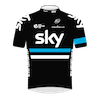
H2H Suggestions
- BMC Racing Team
- Orica GreenEDGE
- ORICA-BikeExchange
- Astana Pro Team
- View all gear
Upcoming races for team
Last victories, top results, grand tours.
- Vuelta a España
Major Tours
- Volta a Catalunya
- Tour de Romandie
- Tour de Suisse
- Itzulia Basque Country
- Milano-SanRemo
- Ronde van Vlaanderen
Championships
- European championships
Top classics
- Omloop Het Nieuwsblad
- Strade Bianche
- Gent-Wevelgem
- Dwars door Vlaanderen
- Eschborn-Frankfurt
- San Sebastian
- Bretagne Classic
- GP Montréal
Popular riders
- Tadej Pogačar
- Wout van Aert
- Remco Evenepoel
- Jonas Vingegaard
- Mathieu van der Poel
- Mads Pedersen
- Primoz Roglic
- Demi Vollering
- Lotte Kopecky
- Katarzyna Niewiadoma
- PCS ranking
- UCI World Ranking
- Points per age
- Latest injuries
- Youngest riders
- Grand tour statistics
- Monument classics
- Latest transfers
- Favorite 500
- Points scales
- Profile scores
- Reset password
- Cookie consent
About ProCyclingStats
- Cookie policy
- Contributions
- Pageload 0.1152s
- Vuelta a España stage 3 Live - Another chance for the sprinters in Portugal
Team Profile
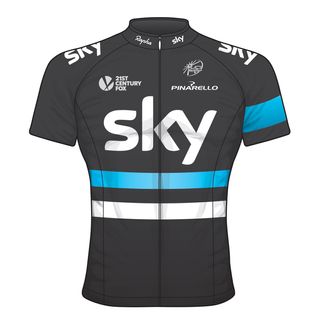
- Ian Boswell
- Philip Deignan
- Owain Doull
- Xabier Zandio Echaide
- Beñat Intxausti Elorriaga
- Andrew Fenn
- Christopher Froome
- David Lopez Garcia
- Sebastian Henao Gomez
- Michał Gołaś
- Mikel Nieve Ituralde
- Peter Kennaugh
- Vasil Kiryienka
- Christian Knees
- Michał Kwiatkowski
- Leopold König
- Mikel Landa Meana
- Sergio Luis Henao Montoya
- Gianni Moscon
- Lars Petter Nordhaug
- Alex Peters
- Danny van Poppel
- Salvatore Puccio
- Nicolas Roche
- Ian Stannard
- Geraint Thomas
- Elia Viviani
Related Articles
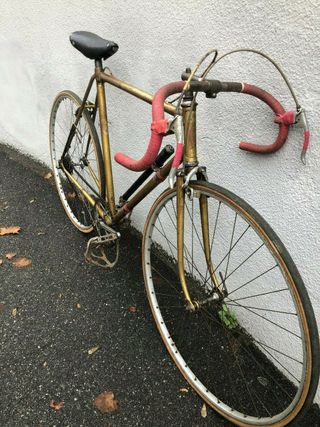
eBay finds: Legnano Gino Bartali 1947 Campagnolo Cambio
By Pat Malach published 13 April 20
Deal For $95,000 you can own a piece of history with a bike built for the Italian legend
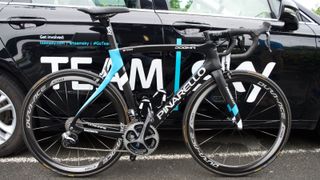
Geraint Thomas' Tour de France Pinarello Dogma F8
By Josh Evans/Immediate Media published 22 July 16
We take a look at the Team Sky rider’s Italian steed
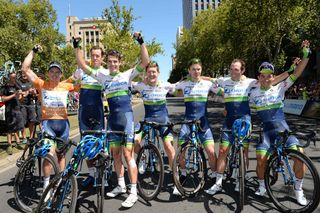
Gerrans tops WorldTour and new world ranking after Tour Down Under victory
By Cycling News last updated 29 August 19
Australian leads Porte and Henao, Orica-GreenEdge lead team ranking
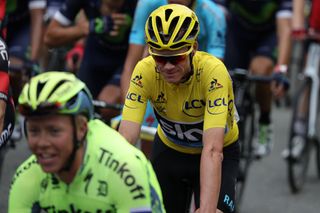
Tour de France: Froome focused on Ventoux and Friday's time trial
By Daniel Benson last updated 29 August 19
'The gaps will open up and be significant,' current race leader predicts
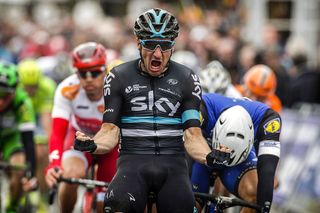
Viviani and Nizzolo to fight for World Championships leadership at Tour of Britain
Olympic medallist and Italian champion to ride similar programmes in September
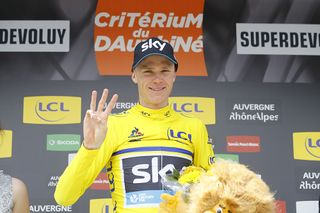
Team Sky ready to help Froome win a third Tour de France
By Stephen Farrand last updated 29 August 19
Brailsford: ‘A star team will always beat a team of stars’
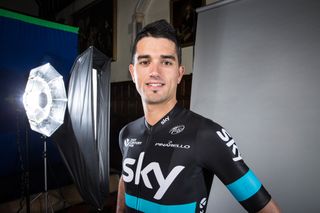
Intxausti: This was a special year but it has fallen apart
Team Sky rider on the comeback trail after mononucleosis layoff
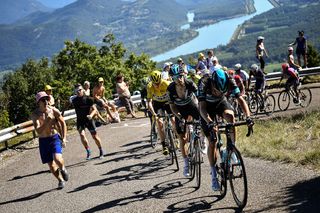
Nieve reaches dream of being on winning Tour de France team
Spaniard ready to rest after long successful season
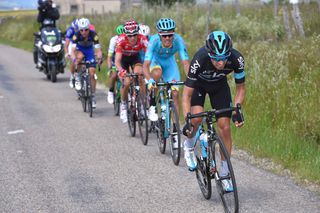
Landa: Aru not yet a Dauphine GC threat
Basque looking for place in Sky's Tour de France team
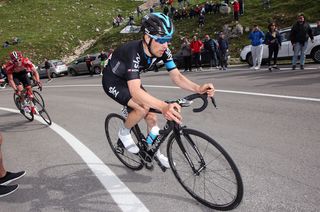
Konig aiming high as he returns to racing at Tour de Suisse
By Sadhbh O'Shea last updated 29 August 19
Team Sky rider targeting Olympic medal after long injury lay off
Notificaties
- Vuelta a Espana 2024
- IDL-producties
- Wielerkalender 2024 - mannen
- Wielerkalender 2024 - vrouwen
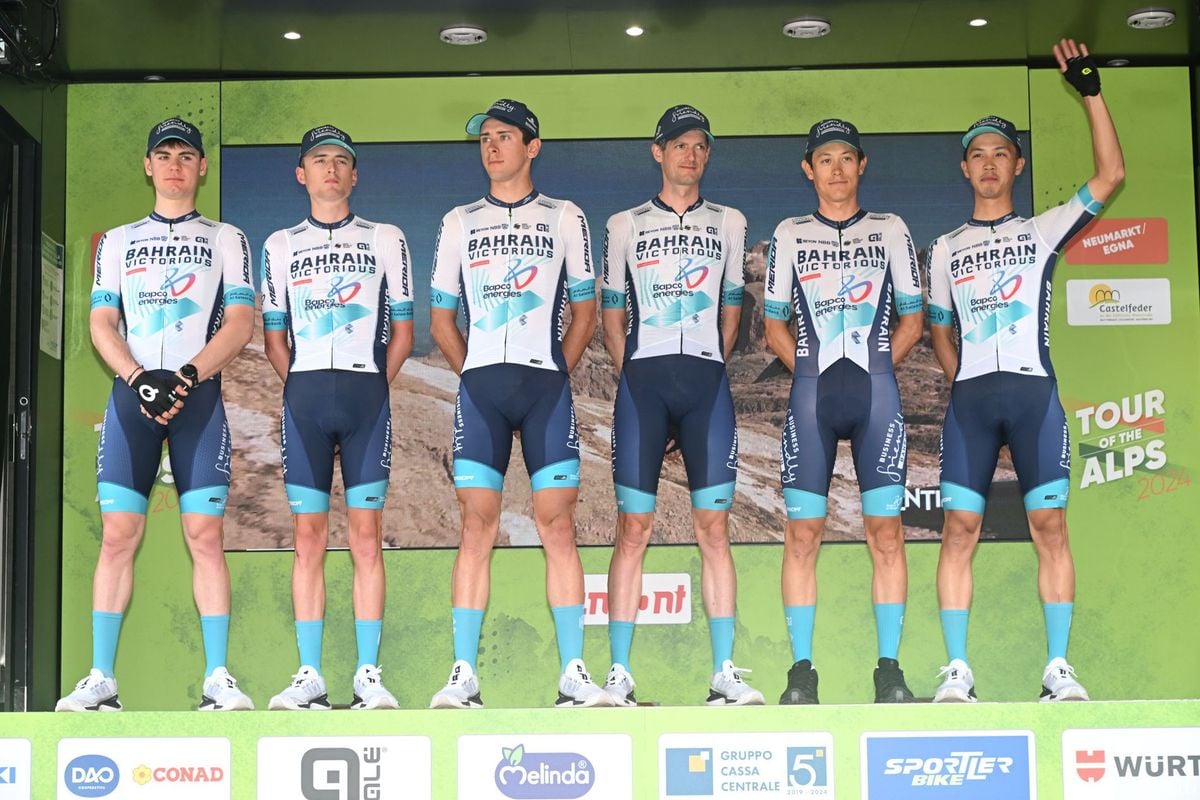
Martinez en Tiberi drillen tot podiumklanten: Ellingworth bij Bahrain met helder doel terug als ploegleider
Rod Ellingworth keert in ieder geval voor drie jaar terug als ploegleider in het peloton. De 52-jarige Engelsman gaat bij Bahrain-Victorious een belangrijke rol vervullen in het performance team , meldt de ploeg via een statement op de eigen site. De focus daarbij ligt op het begeleiden van de jonge ronderenners van de ploeg, die de Bahreinse formatie veelvuldig onder zijn gelederen heeft.
'We zijn blij om Rod terug te brengen bij onze ploeg', begint directeur Milan Erzen. 'Hij zal een belangrijke rol gaan vervullen in het begeleiden van onze talenten voor het klassement zoals Buitrago, Martinez en Tiberi, met daarbij de focus op de grote rondes.' Met Ellingworth voegt de ploeg veel kennis en toe aan de staf. 'Hij heeft veel ervaring met het behalen van de beste resultaten in de beste koersen. Het is geweldig dat hij terug is in ons team,' aldus Erzen. Ellingworth was van 2010 tot 2019 actief bij Team Sky, waarin hij onder andere 7 Tour-overwinningen behaalde.
Ellingworth was in 2023 nog algemeen directeur bij INEOS Grenadiers, maar keert nu bij Bahrain-Victorious dus terug in een meer begeleidende rol. 'Het is fantastisch om terug te zijn en ik kijk er naar uit om de komende drie jaren aan de belangrijkste projecten te werken. Het team heeft fantastische jonge coureurs met goede referenties in het algemeen klassement. Ik kijk ernaar uit om met hen samen te werken om zo de amibities van het team te realiseren.'
ARTICLE_IN_1
Aan potentie geen gebrek bij de ploeg
Het ondersteunen van Buitrago, Tiberi en Martinez zal dus volgens Erzen de focus zijn van de Engelsman. Die eerste won dit jaar een etappe in Parijs-Nice en reed in de zomer top-10 in de Tour, op net geen halfuur van eindwinnaar Tadej Pogacar. Tiberi reed begin dit jaar top-5 in de Giro en won daarbij de witte jongerentrui. De 23-jarige Italiaan verschijnt zaterdag aan de start van de Vuelta a España, waar hij de uitgesproken kopman zal zijn . Nieuwe aanwinst Martinez , in 2023 nog rodetruidrager in de Vuelta, won dit voorjaar vijfmaal maar reed daarna een zeer anonieme ronde van Frankrijk. Voor Ellingworth zit er dus zeker genoeg potentie in de ploeg om de uiteindelijke droom van Bahrain-Victorious waar te maken: op het podium in Parijs staan.
Geen Visma | Lease a Bike, maar Bahrain Victorious voor begeerde Martinez: 'Lenny geeft ons kans op Tourpodium'
Bahrain victorious en tiberi willen giro-prestatie in vuelta a españa overtreffen: 'gaan voor podium', plaats reactie.
Je bekijkt nu de reacties waarvoor je een notificatie hebt ontvangen, wil je alle reacties bij dit artikel zien, klik dan op onderstaande knop.
Bevestiging
Weet je zeker dat je deze reactie wilt rapporteren?
Meest gelezen wielernieuws
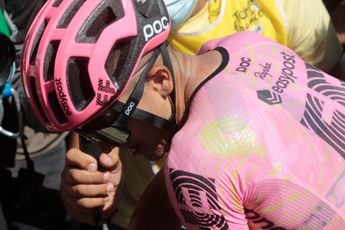
Carapaz na eerste aankomst bergop al gefileerd: 'Weten nu al wie de Vuelta níet gaat winnen'
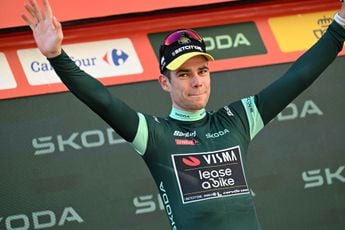
Wout van Aert laat geen twijfel bestaan over doel in deze Vuelta: 'Dat kan iedereen wel zien'
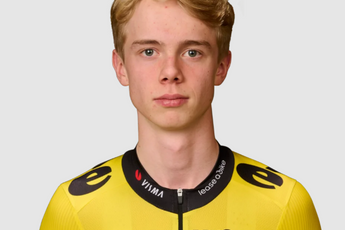
Noorse Visma-parel Nordhagen moet gedwongen schakelen en maakt debuut voor hoofdmacht Nederlandse ploeg
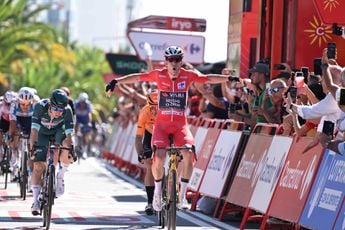
LIVE etappe 5 Vuelta a España 2024 | De tweede voor Wout van Aert? Renners vertrokken richting Sevilla!
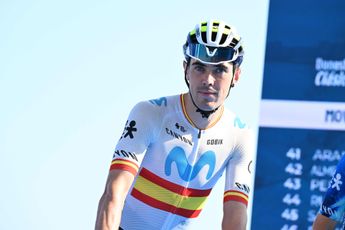
Wielertransfers WorldTour 2025 | Cofidis-baas Vasseur lijft Aranburu in, Eenkhoorn naar de brigade van Lefevere
Meer nieuws.
- 21/08 Carapaz na eerste aankomst bergop al gefileerd: 'Weten nu al wie de Vuelta níet gaat winnen'
- 21/08 Wout van Aert laat geen twijfel bestaan over doel in deze Vuelta: 'Dat kan iedereen wel zien'
- 21/08 Noorse Visma-parel Nordhagen moet gedwongen schakelen en maakt debuut voor hoofdmacht Nederlandse ploeg
- 21/08 LIVE etappe 5 Vuelta a España 2024 | De tweede voor Wout van Aert? Renners vertrokken richting Sevilla!
- 21/08 Wielertransfers WorldTour 2025 | Cofidis-baas Vasseur lijft Aranburu in, Eenkhoorn naar de brigade van Lefevere
- 03/06 Pedersen viert 'comeback' met knal, maar houdt lippen stijf op elkaar over nieuwe Trek-fiets
- 29/04 Opvallend! Balmer moest geleende 'dode fiets' van Jayco-AlUla weer inleveren: 'Stond 60.000 kilometer op de teller'
- 07/04 📸 Op deze fiets moet het gebeuren: met 'banden die niet lek rijden' jaagt Van der Poel op tweede Parijs-Roubaix-zege
- 07/04 Is een koers als Parijs-Roubaix eigenlijk wel verantwoord? Van bloed in urine tot dagenlang slechtziendheid
- 18/03 Visma | Lease a Bike kan opgelucht ademhalen: UCI geeft (voorlopige) goedkeuring over futuristische tijdrithelm
- 05/03 📸 Van 'helm voor kratje pils' (Zonneveld) tot 'Urbanus-kopie': iedereen besprak nieuwe helm Visma | Lease a Bike
- 19/10 Opvallend: Studie suggereert dat renners tijd verspillen met dragen ijsvest tijdens de warming-up
- 02/10 Materiaalleverancier Shimano zou 'zich vereerd voelen' om mogelijke superploeg Soudal-Visma van materiaal te voorzien
- Na David krijgt ook Victoria Beckham eigen docuserie op Netflix 13:42
- 'A True Gentleman': nieuw erotisch drama vanaf september op Netflix 12:59
- Eerste beelden: nieuwe Stephen King-verfilming 'Salem's Lot' slaat de bioscoop over 11:37


IMAGES
COMMENTS
The 2016 Tour de France was the third consecutive Tour de France that Bora-Argon 18 and Fortuneo-Vital Concept had been invited to compete as a wildcard. After the wildcard announcement, Bora-Argon 18's team manager, Ralph Denk, said, "These are great news today! [ sic ], To be invited for the third time in a row to the world's biggest ...
Team Sky went into the Tour de France fully behind Froome, leaving Wiggins off the roster for the event. ... 2016 - Chris Froome wins 2016 Tour de France; September 15, 2016 - Tour de France ...
Team Sky's Chris Froome wins 2016 Tour de France, marking his third Tour victory. ... Froome is 31 years old—trending toward the upper age range for likely Tour winners—but with his personal ...
Stage 8-21: Chris Froome. Chris Graythen/Getty Images. Team Sky's Chris Froome took the third Tour de France victory of his career July 24th—an achievement that ties him with Belgium's ...
1 of 17. CNN —. Chris Froome secured a third Tour de France title Sunday after crossing the finish line in Paris alongside the Team Sky teammates who have helped propel him to victory. The ...
The Team Sky rider, who won the 2013 and 2015 races, is the first man to successfully defend his title in more than 20 years. ... Tour de France 2016: Chris Froome the making of a GB cycling legend.
Chris Froome (Team Sky) is the defending Tour de France champion. Froome won the race in 2013 but crashed out in 2014. ... Tour de France 2016 contenders. A number of big names have already ...
Watch Team Sky's riders taking care of business in our review of the early stages of this year's Tour de France.
Monday 27 June 2016 09:43, UK. Sir Dave Brailsford talks us through Chris Froome's preparations for the Tour de France. Two-time winner Chris Froome will lead Team Sky along with three other ...
Chris Froome (Team Sky) elevated himself further among the cycling greats by winning the 2016 Tour de France in Paris on Sunday, his third Tour victory. Froome took the lead after winning stage ...
Follow John Burn-Murdoch. Chris Froome and Team Sky have dominated the 2016 of the Tour de France from its first mountain stage onwards, in one of the most controlled editions of the race for years.
The 2016 Tour de France was the 103rd edition of the Tour de France, one of cycling's Grand Tours.The 3,529 km (2,193 mi)-long race consisted of 21 stages, starting on 2 July in Mont Saint-Michel, Normandy, and concluding on 24 July with the Champs-Élysées stage in Paris. A total of 198 riders from 22 teams entered the race. The overall general classification was won by Chris Froome of Team ...
Our Team Sky feature focuses on Wout Poels, who has fought back to fitness after a major crash at the Tour in 2012. We also spoke to DS Nicolas Portal and D...
The 2016 season for Team Sky began in January at the Tour Down Under. As a UCI WorldTeam, they were automatically invited and obliged to send a squad to every event in the UCI World Tour. Team roster The 2016 team, as displayed on one of the team buses ... Tour de France, Stage 8: UCI World Tour
Find out the latest news, stage reports, race scores and expert analysis from the 2016 Tour de France Stage 21. Cyclingnews.com: The world centre of cycling.
The 2016 Tour de France takes places from July 2-24. ... 9 Chris Froome (GB) Team Sky, 131 10 Rafal Majka (Pol) Tinkoff, 120. Also See: Tour de France guide Tour de France favourites
Here's what it takes to keep Team Sky running through the 2016 Tour de France.Subscribe to GCN: http://gcn.eu/SubscribeToGCNGet exclusive GCN gear in the GCN...
The sheer numbers involved with the Tour de France demonstrate its status as a sporting event like no other.. On Saturday 2 July, 198 riders from 22 teams will set out to compete in the 103rd ...
Team Sky has announced its line up for the 2016 Tour de France. The 103rd edition of the Tour starts at Mont-Saint-Michel on Saturday 2nd July and concludes on Sunday 24th July in Paris. Defending champion Chris Froome will be joined by: Sergio Henao, Vasil Kiryienka, Mikel Landa, Mikel Nieve, Wout Poels, Luke Rowe, Ian Stannard and Geraint Thomas. Team Sky will be aiming to win a fourth Tour ...
The science behind Chris Froome and Team Sky's Tour de France preparations. WIRED followed Chris Froome as he prepared to defend his Tour de France title in 2016. In 2017, he's set to win for the ...
Team Sky was the name of the cyclingteam in 2016. The main riders on the team this season were , and . ... Races Tour de France; Giro d'Italia; La Vuelta ciclista a España; World Championships; Milano-Sanremo; Amstel Gold Race; Tirreno-Adriatico; Liège-Bastogne-Liège; ... Team Sky (WT) » 2016. 2016. Victories; 39; Points; 10866; PCS# 2; UCI ...
View Team Sky 2016 Pro Cycling Team Details and Profile Infos - View profiles and information for professional race teams and cyclists here. ... Geraint Thomas' Tour de France Pinarello Dogma F8 ...
Met Ellingworth voegt de ploeg veel kennis en toe aan de staf. 'Hij heeft veel ervaring met het behalen van de beste resultaten in de beste koersen. Het is geweldig dat hij terug is in ons team,' aldus Erzen. Ellingworth was van 2010 tot 2019 actief bij Team Sky, waarin hij onder andere 7 Tour-overwinningen behaalde.
The Wall Street Journal took a tour of Team Sky's approximately $500,000 bus to see how two-time Tour de France winner Chris Froome and the rest of Team Sky ...